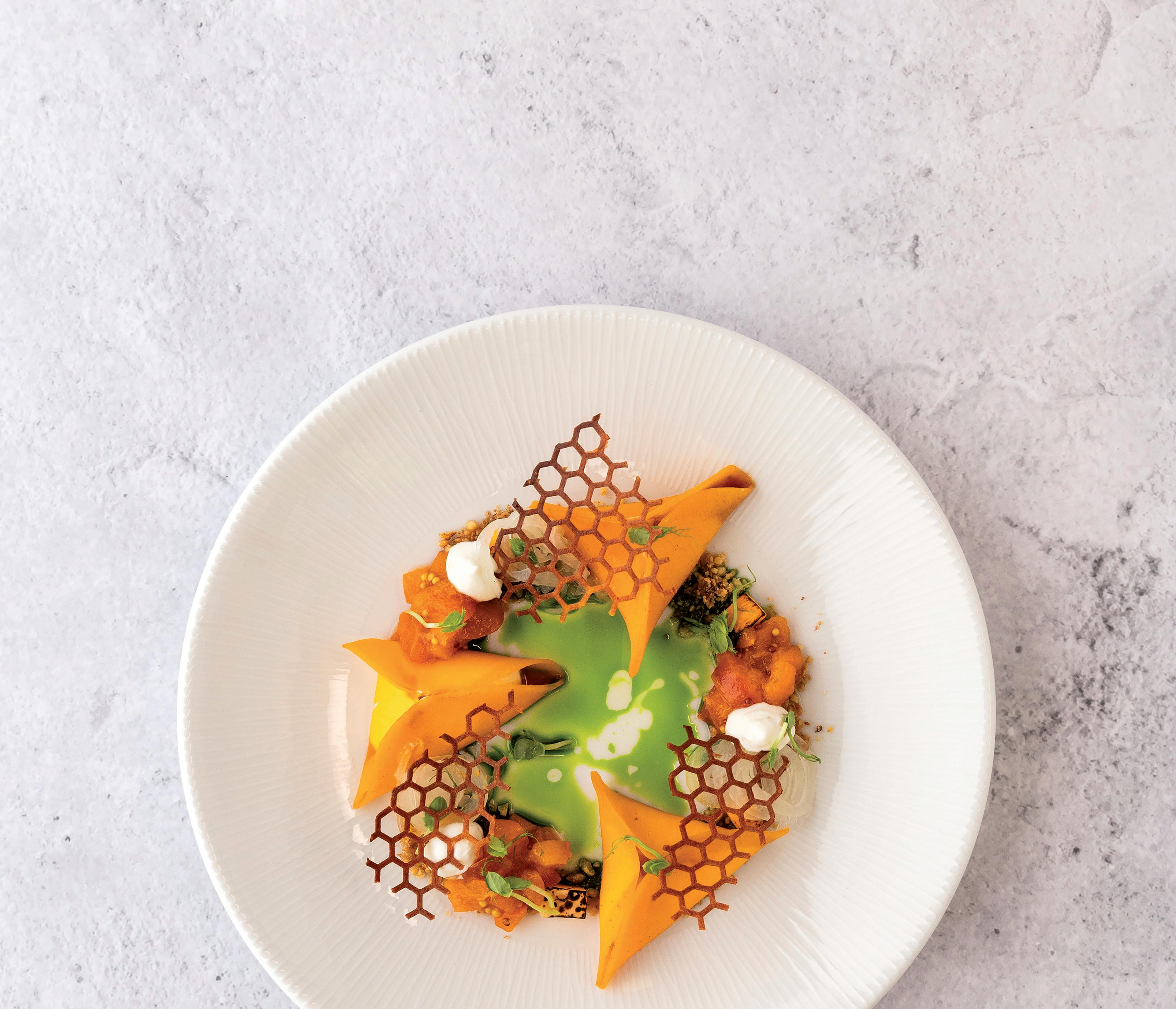For everything eggs...

New Zealand's leading egg producer, supplying a complete range of liquid whole egg, whites, yolk, blends, cooked peeled and shell eggs.
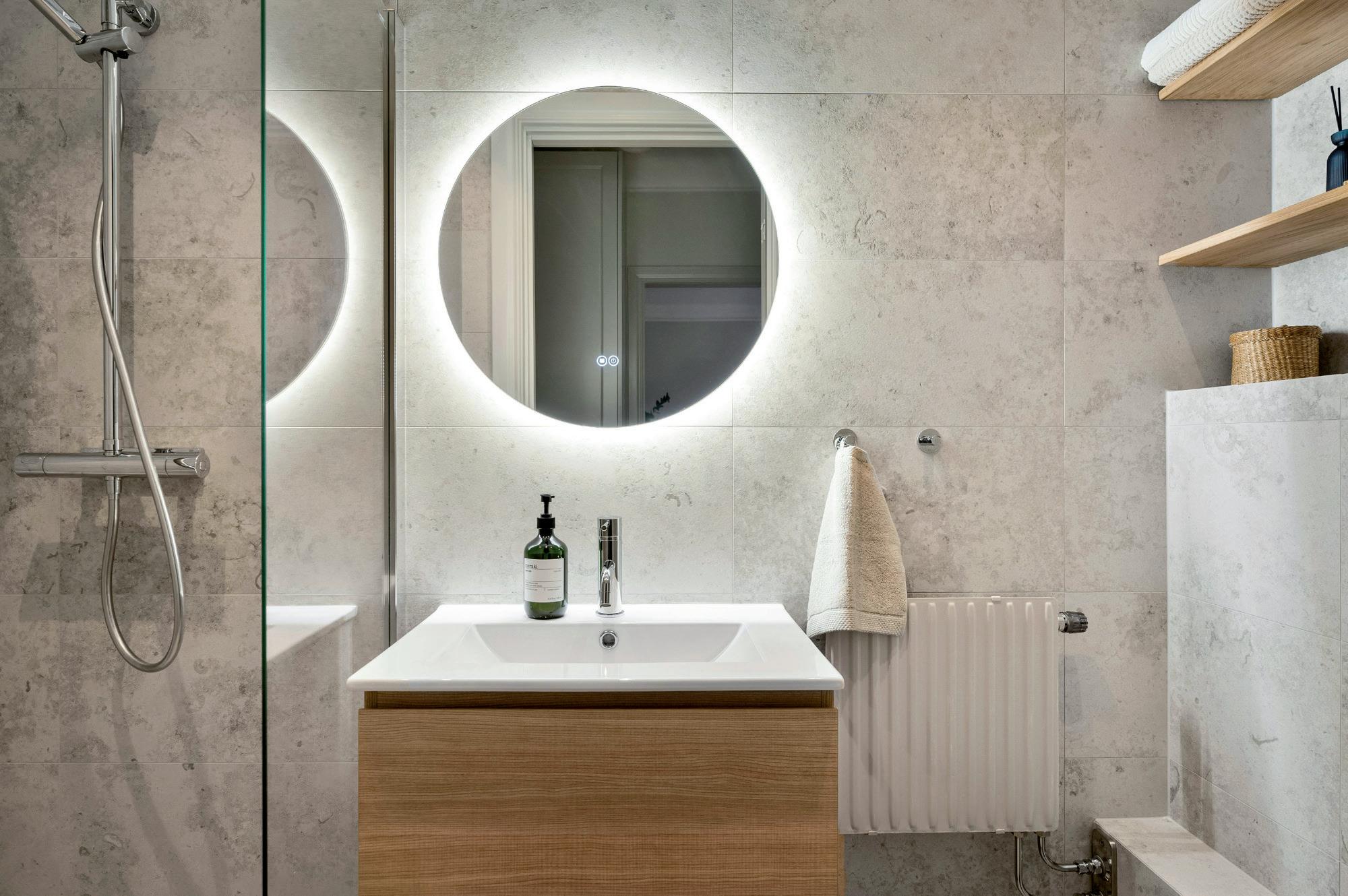


New Zealand's leading egg producer, supplying a complete range of liquid whole egg, whites, yolk, blends, cooked peeled and shell eggs.

After visiting hundreds of hotels across different markets, one thing stands out time and again: the properties that shine are not always the ones with the most dramatic architecture or the newest room design. They are the hotels where small issues are picked up early and addressed promptly. A chipped tile,
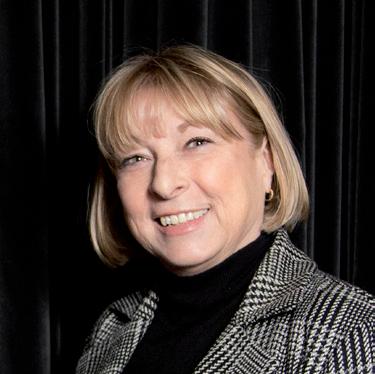
PUBLISHER: Tania Walters
ADMINISTRATION MANAGER: Kieran Mitchell
EDITOR-IN-CHIEF: Caitlan Mitchell
HEAD OF CONTENT: Sarah Mitchell

CONTENT MANAGERS: Caroline Boe, Daniel Rogers
EDITORIAL TEAM: Sam Francks, Jenelle Sequeira
a loose handle, a flickering light bulb, individually they may seem minor, but left unattended they quickly add up to create an impression of neglect. Guests notice. When these details are ignored, a hotel can look tired long before its time, while the cost of deferred maintenance almost always outweighs the savings.
It is not just about repairs either. Thoughtful design choices make just as much difference to the guest experience. Overcrowding a room with too much furniture is a common mistake. If a room is small, the solution is not to cram more in, but to be clever with the space available. Taking time to get the layout right creates flow, comfort, and usability, which in turn enhances the sense of value for the guest.
SENIOR DESIGNER: Raymund Sarmiento
GRAPHIC DESIGNER: Raymund Santos

Lighting is another area where too many hotels fall short. Guests need practical light for shaving and makeup, softer low-level options in the bathroom for night use, and the right balance of natural and artificial light to create atmosphere. Poor lighting is not just an irritation. It signals a lack of consideration for the needs of those staying in the room.
The same goes for electrical access. A modern traveller expects charging points and sockets to be positioned where they are naturally required: beside the bed, near a desk, close to a mirror. If guests are forced to crawl behind furniture or stretch cables across the room, it undermines the stay which in turn means no returning guest.
Attention to these basics does not just stave off major repairs and costly refurbishments. It protects the reputation of the property. Hotels that pay attention to maintenance and design details present themselves as cared for, and that sense of care is exactly what guests remember. l



















The Waikato Chamber of Commerce has announced JetPark Hamilton Airport Hotel as a finalist in its 2025 Business Awards.
JetPark Hamilton Airport Hotel & Conference Centre has been announced as a finalist in the Service Excellence Award category at the 2025 Waikato Chamber of Commerce Business Awards, proudly supported by Foster Construction Group.
CLICK TO READ MORE
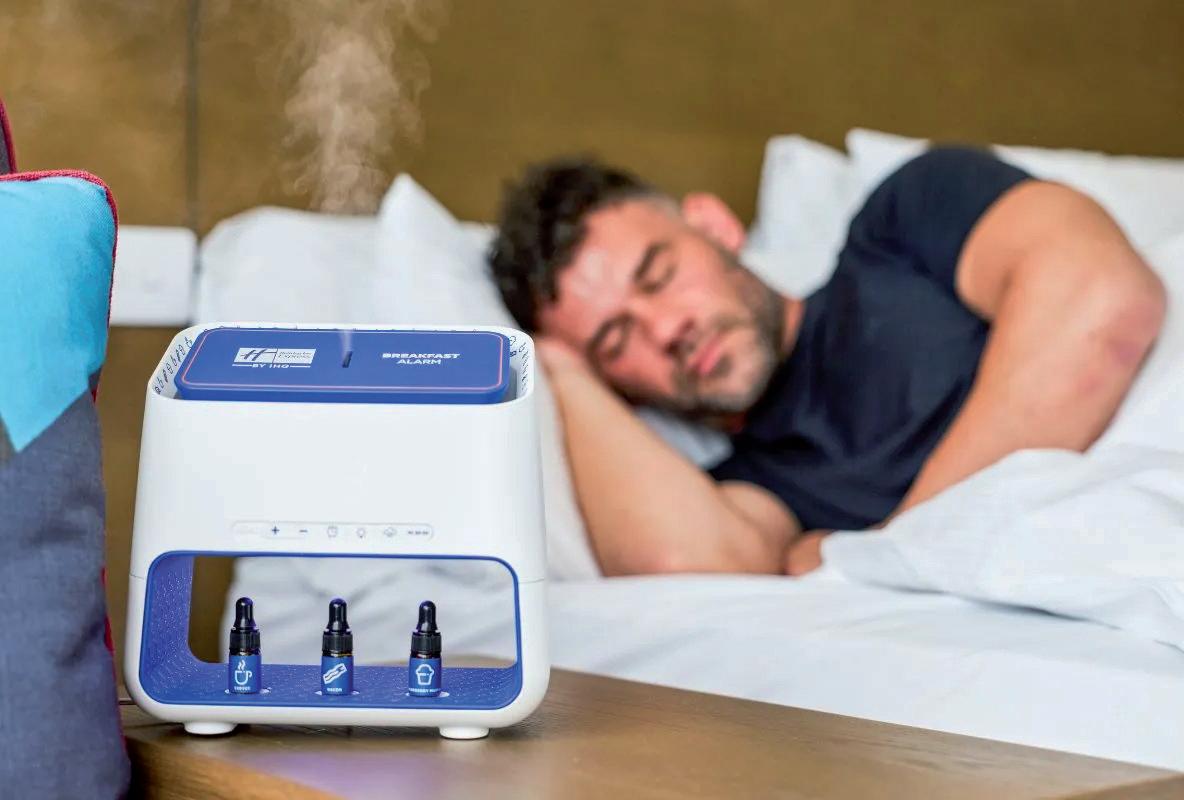
Holiday Inn Express has launched the Breakfast Alarm Clock, allowing guests to wake up to the fresh smell of breakfast. Guests will be able to say goodbye to blaring alarms and the dreaded snooze spiral. Holiday Inn Express by IHG has unveiled a world-first hotel experience designed to transform mornings, one mouthwatering scent at a time.
CLICK TO READ MORE
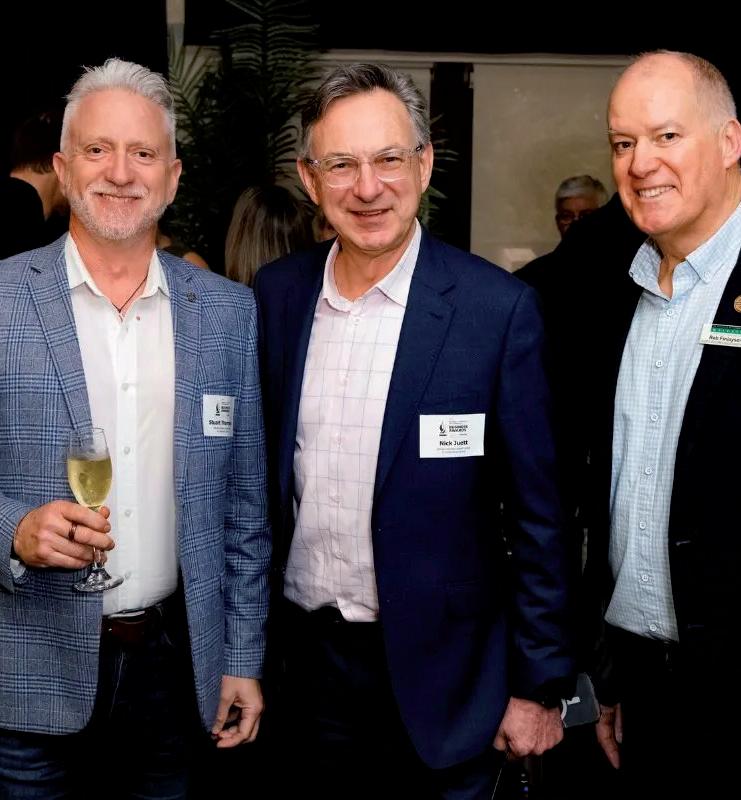
Drifter has officially opened in Australia, welcoming guests to its new Byron Bay property, ahead of further expansion in the region.
Drifter has launched its first Australian property, Drifter Byron Bay marking the brand's official entry into the Australian market and the first Drifter brand opening since the successful launch of Drifter Christchurch in June 2024.
CLICK TO READ MORE
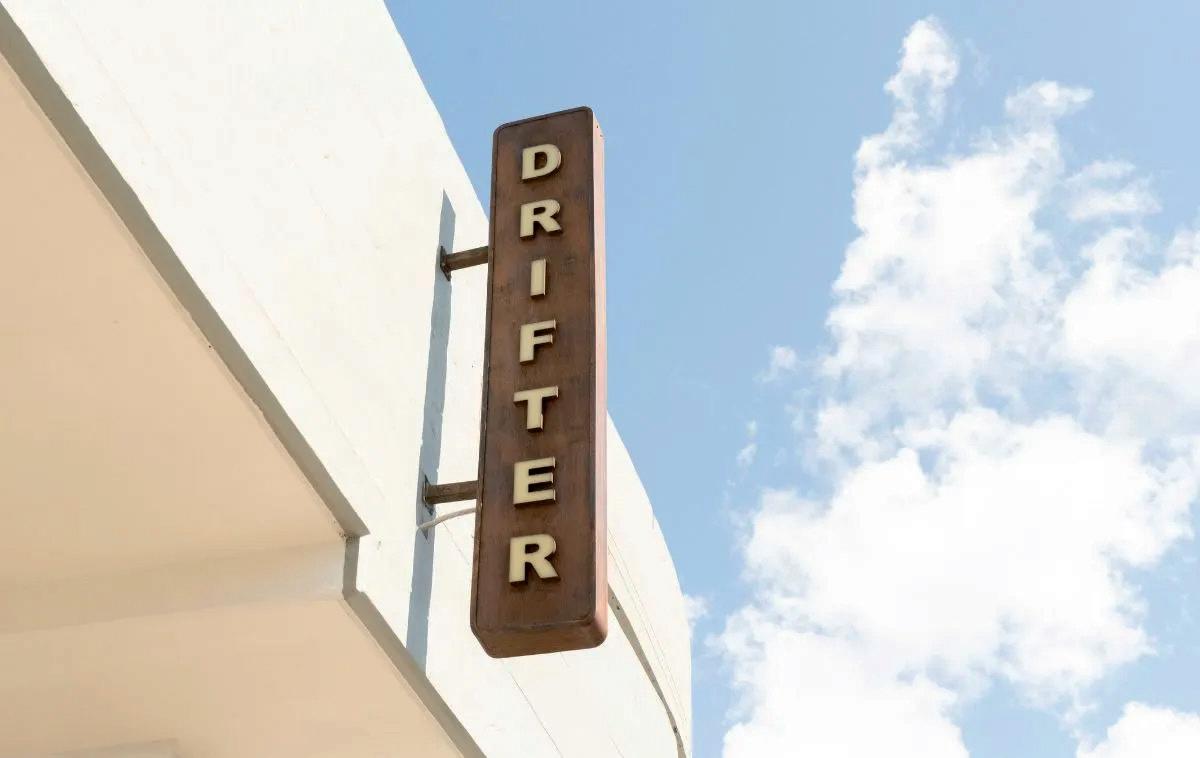


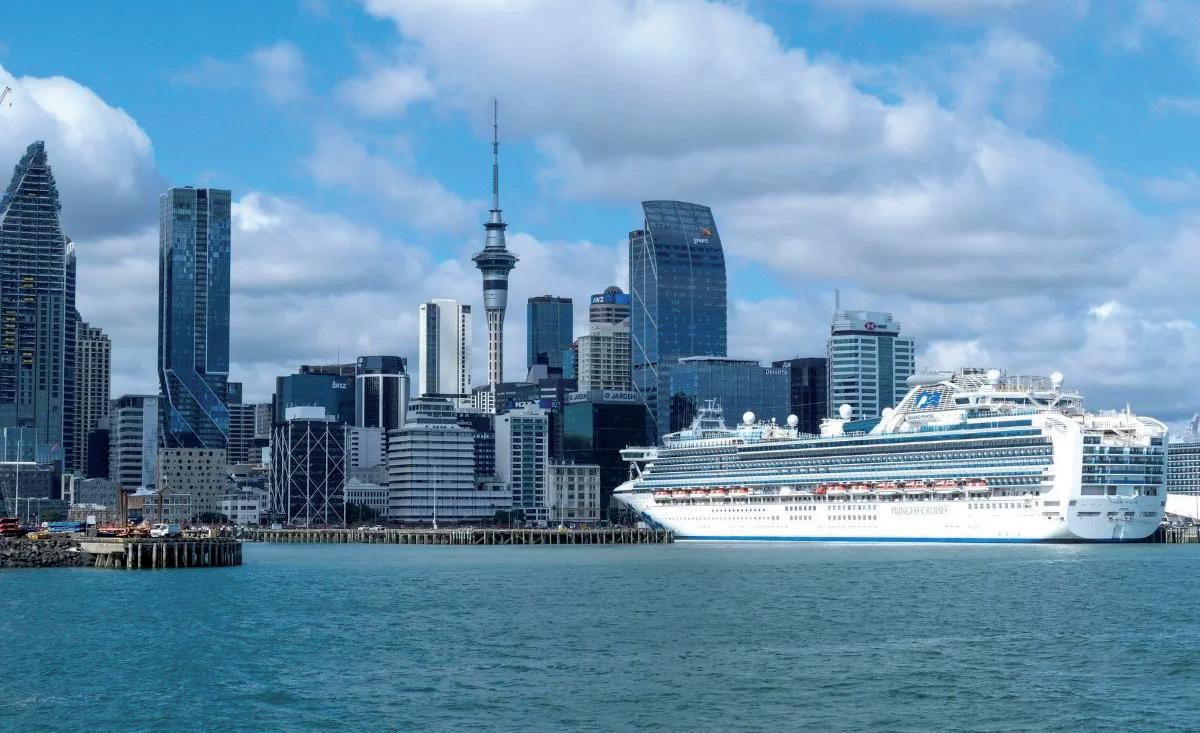
With the start of the 2025/2026 cruise season, Minister Louise Upston is confident in New Zealand's sector future.
Tourism and Hospitality Minister Louise Upston has welcomed a strong opening to New Zealand’s cruise season, which she said was thanks to joint government and industry efforts.
CLICK TO READ MORE
From Guangzhou in China to Wellington, a sister-airport agreement has been reached between both cities' largest airports.
Wellington Airport has signed a Memorandum of Understanding (MoU) with Guangzhou Baiyun International Airport, the busiest airport in China and seventh busiest in the world.
The two airports have agreed to strengthen their relationship and work to share knowledge and jointly develop opportunities together. The agreement covers staff training and exchanges, project cooperation, and working to schedule potential future services between the two airports.
CLICK TO READ MORE

As adventure tourism begins to grow, more towns and regions have looked to bungy jumping as a way to attract tourists.
In 2025, adventure travel has become a growth engine. Adventure tourism products such as those Bungy NZ Ventures offer provide regions a combination of distinctive destination branding and strong local spend retention.
CLICK TO READ MORE
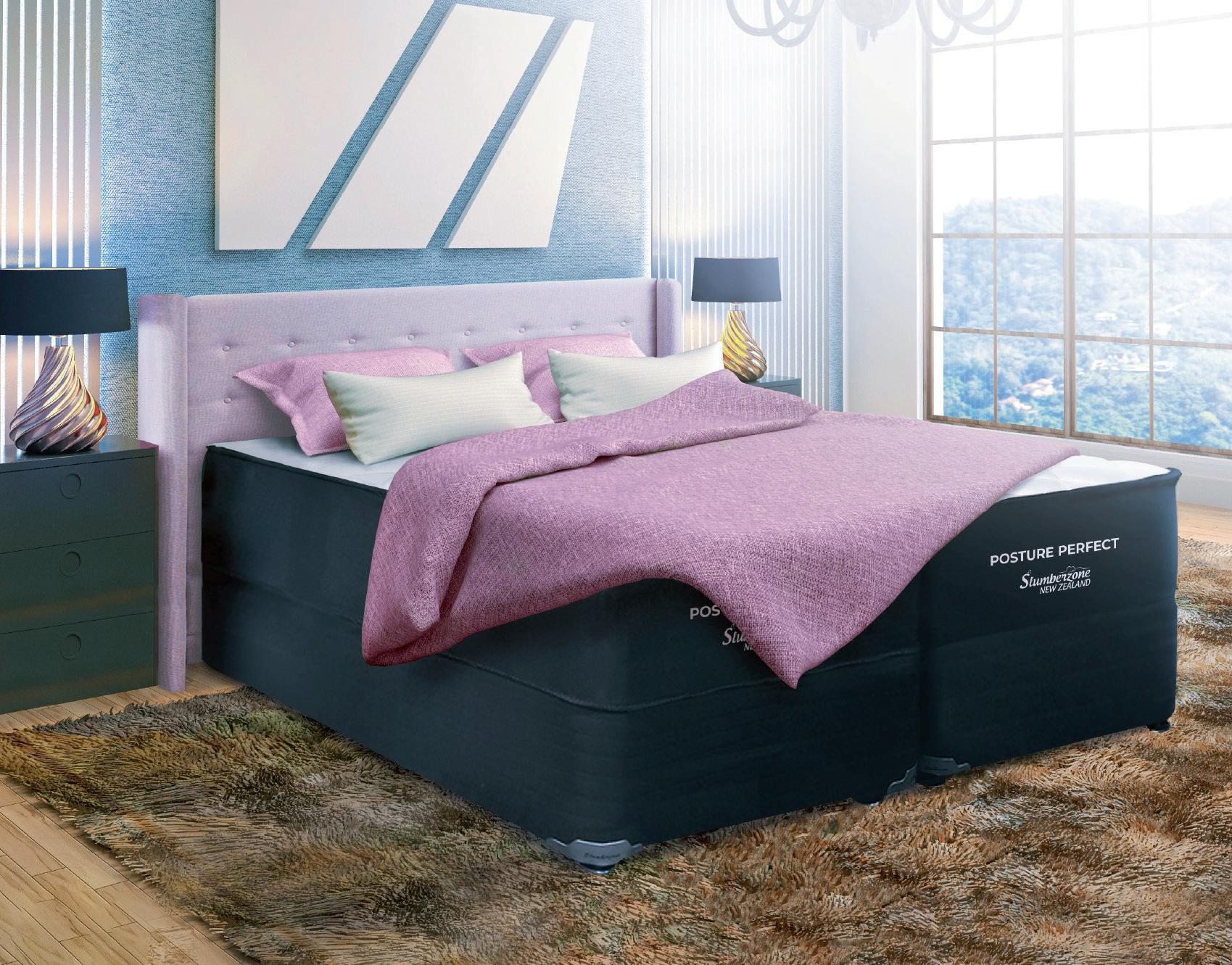
Redefine the comfort of your guests with Slumberzone beds.


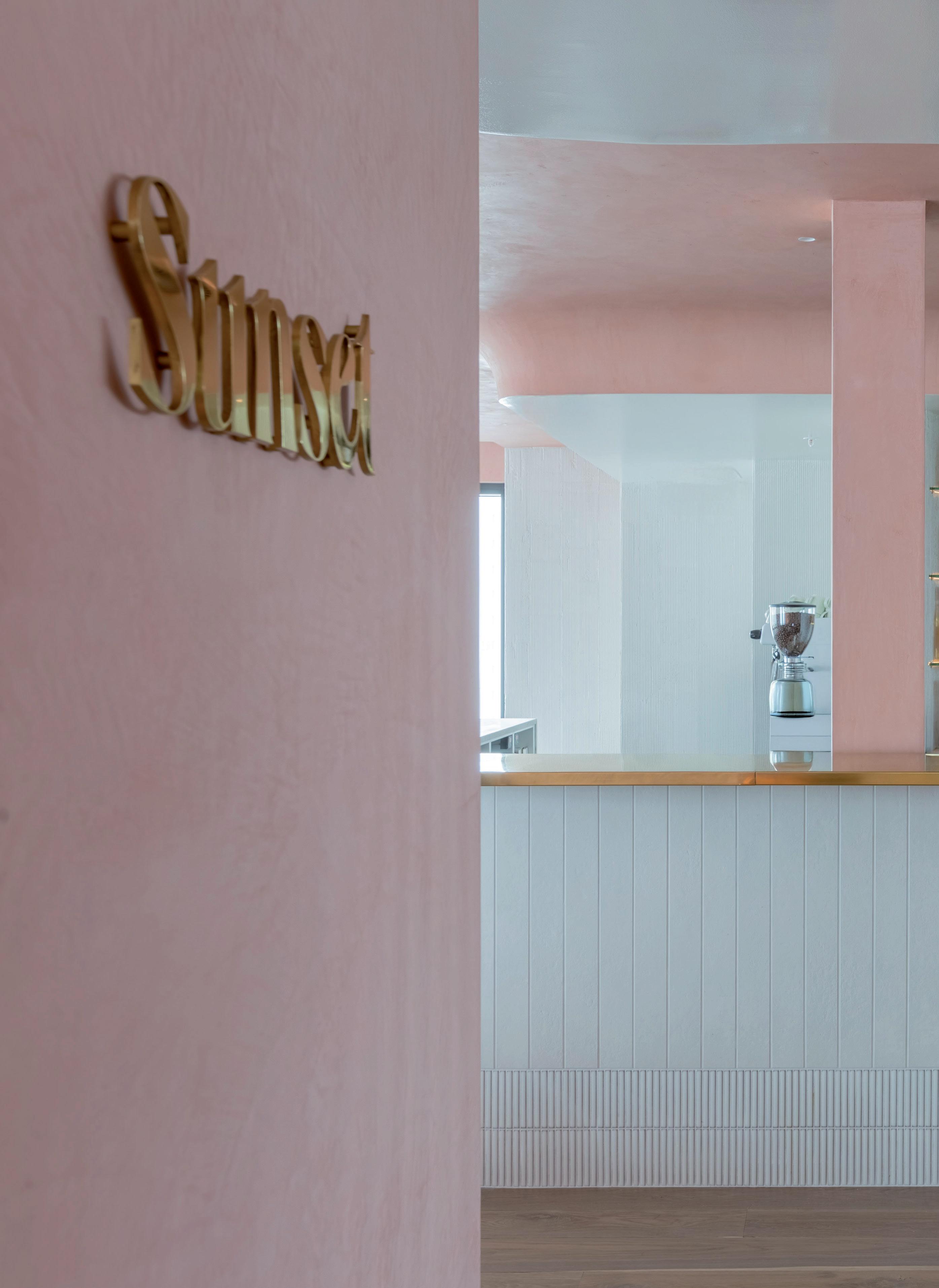

Hospitality has always been about more than food and beds. What truly defines it is the experience – the way a guest feels during and after their visit. Over time, I’ve come to see that every experience, whether it’s a quick drink, a long dinner, or a night’s stay, is shaped by three essential pillars: Product, Delivery, and Environment. Together, these form the framework that determines whether a business thrives.
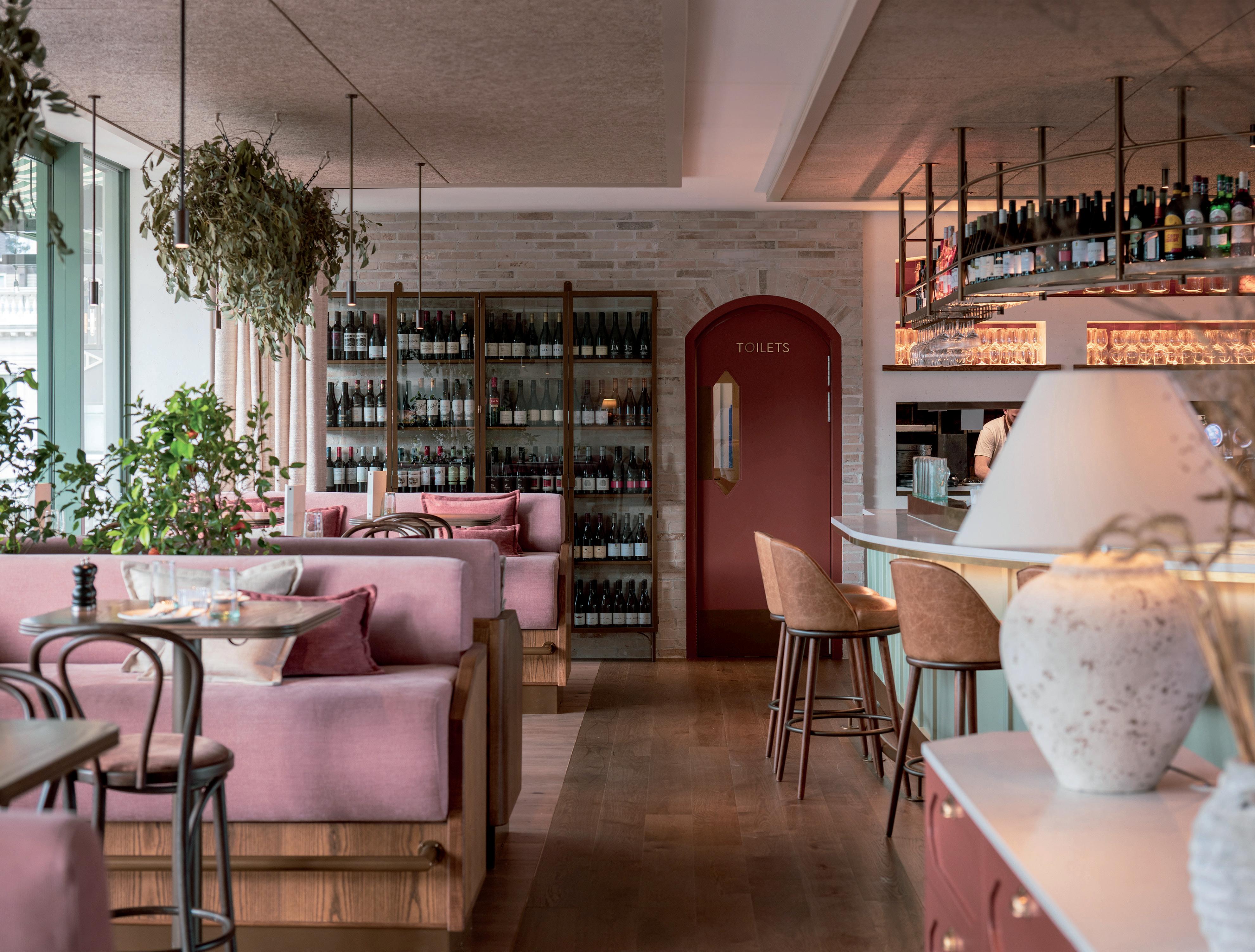
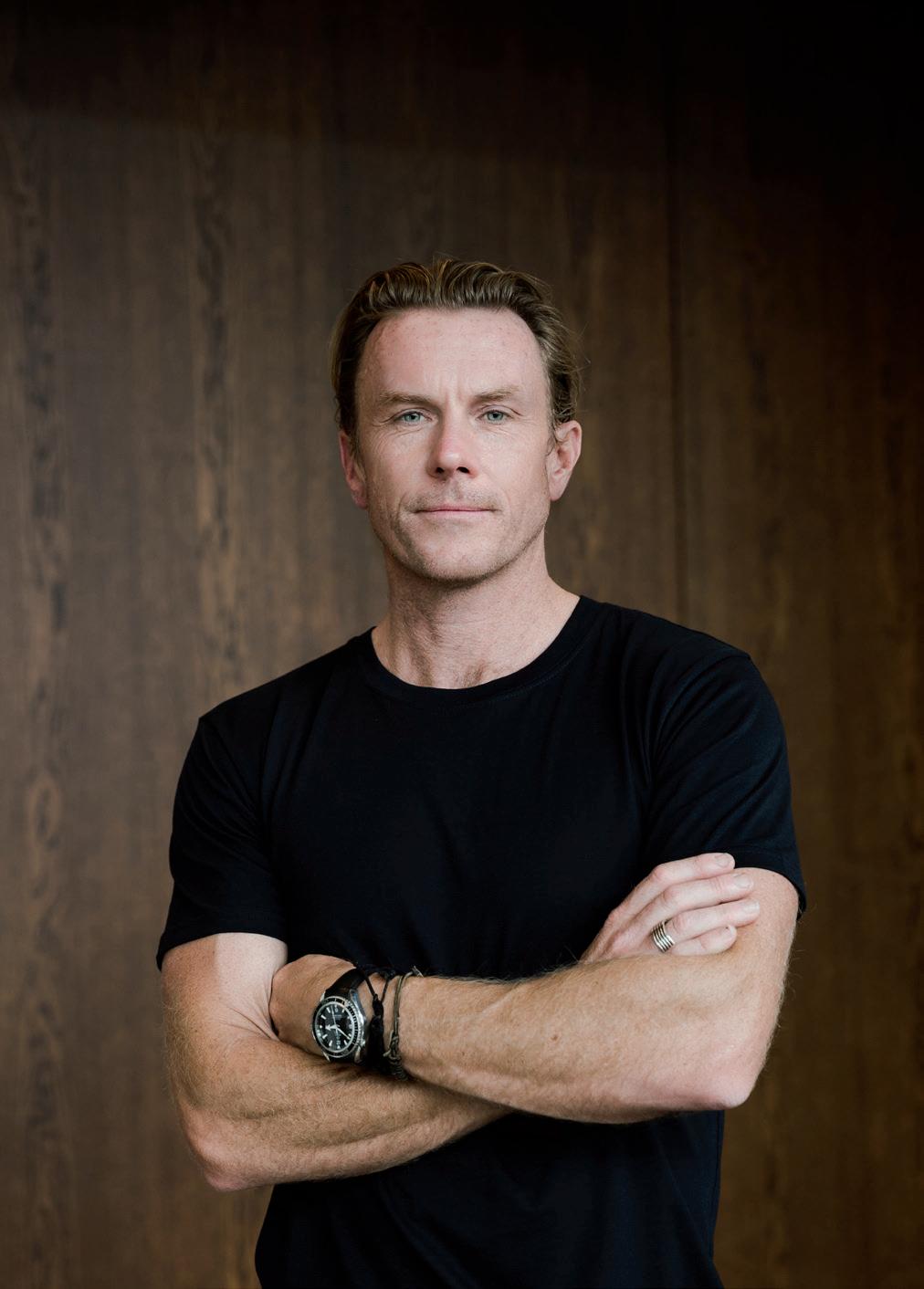
Each of the three pillars carries its own weight, but true success comes when all three work in synergy. If even one is missing or misaligned, guests will feel it. And in today’s competitive climate, where people are going out less and expecting more, hoteliers and restaurateurs can’t afford to ignore the balance.
At CTRL Space, our approach is always human-centric. Design is not simply about how a space looks, but how people feel, move, interact, and connect within it. Each of the three pillars can be strengthened when you start with the human experience.
Product: What You’re Selling
The product is the most straightforward pillar: food, drink, rooms, amenities – the tangible things people are paying for. But while it’s the foundation, a strong product on its own isn’t enough.
I’ve seen businesses with exceptional food or drink struggle

because their delivery and environment didn’t measure up. Ultimately, it comes down to expectation. In fine dining, for example, all three pillars must work in harmony. Guests at The Grove, one of Auckland’s most established and acclaimed fine dining restaurants, expect a menu of refinement, service that matches its reputation, and a setting that elevates the entire experience.
At Metita, the Pacific-inspired restaurant at SkyCity Auckland, celebrated chef Michael Meredith was deeply involved in shaping every aspect of the experience. Working closely with him, CTRL Space brought his vision to life through the environment – ensuring the design honoured Pacific culture and heritage just as meaningfully as the food and service. Guests don’t just dine; they are immersed in a carefully layered narrative where product, design, and human connection align.
Delivery: How It’s Experienced Delivery is the human element: how guests are greeted, how service unfolds, the way staff carry themselves. It’s the smile at the door, the confidence of a maître d’, the seamless arrival of a cocktail.
If pressed, I would argue delivery is the most important pillar. Service has the power to elevate an experience or undo it entirely. The first few steps a guest takes – from the street to the seat – are critical. Any conflict or confusion creates friction that lingers, and hospitality is ultimately about removing friction.
At Sunset, the rooftop bar at Sudima Auckland City, the service model was built into the design itself. A long central bar allows staff to work quickly while keeping the atmosphere social. The design makes it easier for staff to perform well, which translates into faster drinks, better engagement, and higher guest satisfaction. In this way, humancentric design directly supports the human element of service.
Environment: Where It All Happens
The environment is the stage on which hospitality unfolds, and it is increasingly non-negotiable. Particularly in New Zealand, guests expect design-led spaces across all price points. Even “budget-friendly” is no longer an excuse for mediocre design.
Environment is also a major investment – once it’s in place, it’s not easily changed. But “Environment” is not simply about beauty; it’s about commercial success. Good design sets the tone from the moment a guest enters and removes ambiguity about the experience they’re about to have. At CTRL Space, we obsess over space planning, ensuring there are no “bad seats”, that couples have intimacy, groups have room without blocking others, and everyone feels they belong. This is the essence of human-centric design: making every guest feel considered.
With Drifter, a hybrid hotel concept for which CTRL Space is the interior design partner, the environment had to appeal to a new generation of travellers. The design encourages social connection, with communal lounges and flexible work-meet-play zones. Here, the environment drives revenue, because guests are more likely to stay, spend, and return when the space feels alive and adaptable.
Last year I stayed at The Hoxton Barcelona, for the international Restaurant & Bar Awards. There the bar and social space sit front and centre, with reception tucked behind. It’s also a “social-first” model that reflects the brand’s ethos and immediately signals to guests that the hotel is about belonging, not just checking in. That kind of clarity in design gives guests ownership of the space from the moment they arrive.
Today’s guests are more discerning than ever. They are going out less, but expecting more. That means every touchpoint – product, delivery, and environment – must work harder. And while food and service can evolve quickly, design is much harder to change after the fact. For hoteliers, the advice is simple: start with your guests. Before you
even consider the design, think about who is likely to—and who you want to—walk through the door, and what they hope to gain from the experience. Then, invest in great design up front. Design that reflects and supports those expectations. Your environment can anchor the experience and set the tone before a guest even steps inside. From there, ensure your product and delivery are consistent with that story.
Because at the end of the day, hospitality is storytelling. The most successful venues don’t just have great food, seamless service, or beautiful spaces in isolation, they weave these elements into an experience that feels authentic and memorable. When product, delivery, and environment are in harmony, every guest becomes part of a story worth sharing – one they’ll remember, return to, and recommend. l
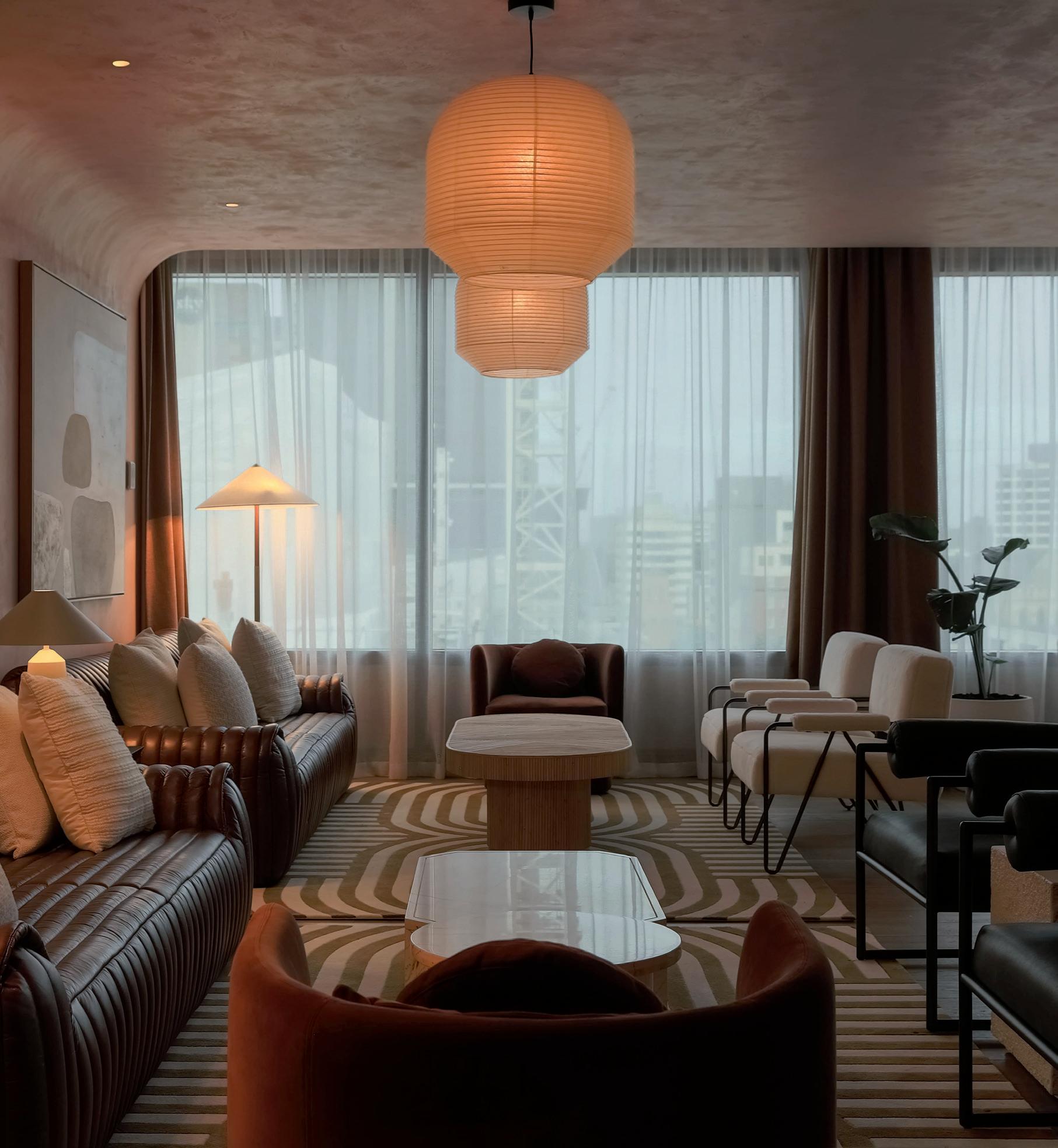

In the highly competitive world of accommodation, first impressions are everything.
Guests may be drawn in by glossy marketing or location perks, but what truly shapes their experience, and ultimately their reviews, is cleanliness. A spotless room signals care, professionalism, and reliability. Research has consistently shown that nearly half of travellers globally base their booking decision on cleanliness standards alone. For hotels, motels, and B&Bs, this reality makes housekeeping not just a back-of-house task, but a cornerstone of brand reputation. Outsourcing housekeeping services is becoming one of the

smartest strategies accommodation businesses can adopt. Beyond simply saving money, it provides a powerful combination of flexibility, efficiency, and peace of mind. Unlike the complexities of managing inhouse teams, third-party providers offer ready-made solutions, trained staff, scalable rosters, and specialised knowledge, all tailored to a property’s unique requirements. Whether it’s a boutique lodge that needs deep cleaning on weekends or a high-occupancy hotel requiring daily turnover, outsourcing allows operators to match service levels exactly to demand.
Operationally, outsourcing will ensure smoother day-to-day running of a property. Managers can focus on the bigger picture while specialist teams handle the details.
The financial benefits are difficult to ignore. Hiring, training, and retaining an in-house team comes with hidden costs: recruitment fees, sick leave, holiday pay, and ongoing HR management. Outsourced services eliminate these burdens, replacing them with predictable, transparent costs that scale with occupancy. That predictability means managers can redirect their energy towards guest services, marketing, and growth initiatives, areas that directly impact revenue.
But the advantages extend far beyond dollars saved. Outsourcing also guarantees a professional standard of cleanliness. External providers employ staff who are highly trained in hospitality hygiene
practices, from sanitising high-touch surfaces to ensuring consistency across rooms and common areas. This expertise is especially crucial in today’s world, where guests demand not just comfort but a visible commitment to health and safety. When every detail is meticulously managed, fresh linens, gleaming bathrooms, and dust-free surfaces, guests feel reassured and valued, resulting in higher satisfaction scores and repeat bookings.
Operationally, outsourcing will ensure smoother day-to-day running of a property. Managers can focus on the bigger picture while specialist teams handle the details. Turnover times are faster, standards are consistent, and the pressure
on permanent staff is reduced. For businesses striving to maintain a polished reputation, this kind of behind-the-scenes efficiency makes all the difference.
Ultimately, accommodation businesses thrive on the experiences they deliver. Outsourcing housekeeping is more than a costcutting measure; it’s an investment in performance, professionalism, and peace of mind. Clean, wellmaintained spaces inspire guest confidence, enhance brand image, and set the stage for glowing reviews. For operators determined to stand out in a crowded market, handing housekeeping over to the experts isn’t just an option; it’s a competitive advantage. l
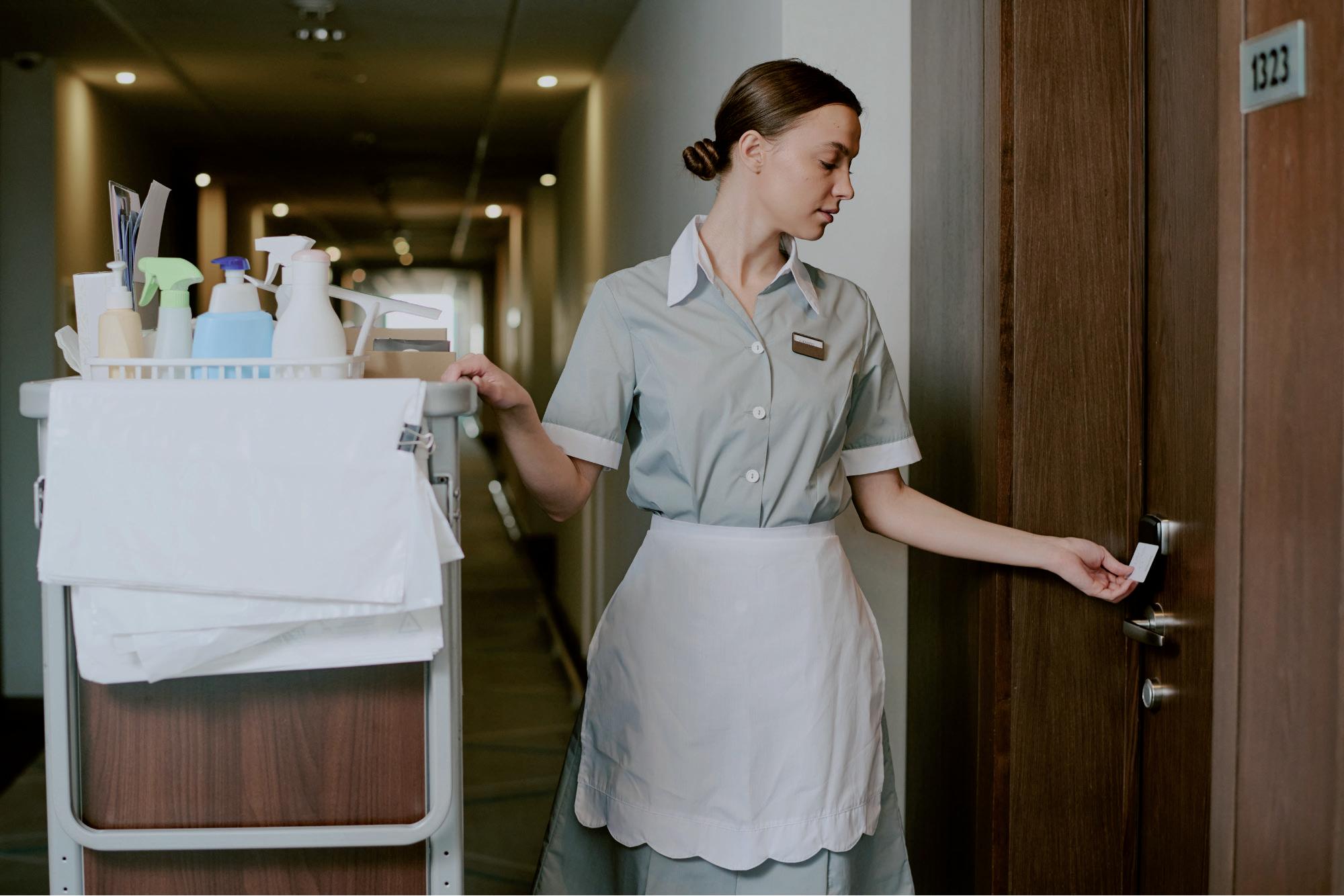

By entrusting staffing, training, and compliance to industry experts, hotels can ensure consistent, high-quality service while freeing their teams to focus on what matters most: creating memorable guest experiences.
Tim Reynolds, General Manager for New Zealand at AHS Hospitality, said outsourcing housekeeping can allow accommodation businesses to focus on other priority areas.
“At AHS Hospitality, we bring more than a decade of experience in New Zealand, delivering consistent, reliable, and professional housekeeping services underpinned by established SOPs and rigorous quality control measures. Beyond spotless rooms, outsourcing provides flexibility, cost savings, access to trained professionals, and the confidence that every detail is managed by specialists,” said Reynolds. Managing an in-house

housekeeping team can be both costly and time-consuming, involving continuous recruitment, training, payroll, HR, and compliance oversight. By outsourcing, hotels alleviate these burdens and gain access to a ready pool of trained staff whenever needed. This not only eases the pressure on hotel managers but also ensures a consistently high standard of service that protects brand reputation.
In today’s competitive market, where guest satisfaction and online reviews are critical, outsourcing allows providers to maintain excellence while focusing resources on growth and enhancing the guest experience.
Reynolds said one of the biggest
challenges for hotels is managing fluctuating occupancy driven by seasonality.
Relying on in-house teams can often mean carrying fixed staffing costs throughout the year, even during quieter periods, along with the added burden of leave balances and other overheads. Outsourcing can remove this pressure by providing a flexible, cost-effective workforce solution.
“We tailor staffing levels to match demand, ensuring hotels are always appropriately resourced without the risk of being overstaffed or understaffed,” he said.
All AHS Hospitality staff complete structured training designed around

its standard operating procedures (SOPs). This has included modules on cleaning systems and processes, health and safety, chemical handling, and correct cleaning techniques.
“Our focus is on equipping every team member with the knowledge and skills they need to deliver consistent, high-quality outcomes across all properties.”
Reynolds said outsourcing is often significantly more cost-effective than maintaining an in-house team. Hotels avoid expenses related to recruitment, HR, insurance, training, and equipment, while also benefiting from optimised staffing levels that reduce unnecessary labour costs. By shifting these overheads to a professional partner, hotels can strengthen cost control and achieve improved productivity.
Flexibility is one of the greatest advantages for businesses when using outsourcing services. During
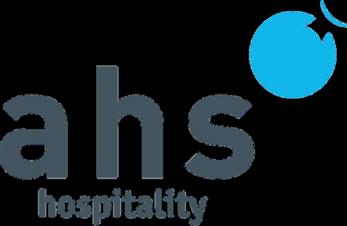
peak seasons or special events, hotels can access additional trained housekeepers on demand, ensuring rooms are turned around quickly without overburdening permanent staff. Conversely, during quieter periods, staffing can be scaled back to reduce costs. This agility helps hotels avoid the challenges of carrying fixed labour costs yearround, while maintaining service quality regardless of occupancy levels.
“Flexibility sits at the heart of our service model. We maintain a strong pool of staff across New Zealand, enabling us to place the right team in the right hotel at the right time,” added Reynolds.
“Each property has a dedicated core team for consistency, with additional staff added during peak periods. This approach ensures our services are adaptable while remaining closely aligned with each





We make it our mission to be the experts in our industry so you can concentrate on being the experts in yours.
Property prices, utility costs, wages and consumables have all risen hugely over the past four years so it makes sense to stop and review where savings can be made. Operating an on-site laundry is one cost area that when reviewed customers often find that the option of outsourcing just makes more sense in terms of better use of space, staffing, time and money.

Given these considerations, New Zealand owned and operated Linenmaster offers a practical solution for all linen management needs, allowing customers to focus on the core business of caring for older adults.
Linenmasters' expertise lies in linen rental services. Investing in the necessary products and providing a comprehensive package covering pick-up, laundering, and return delivery that eliminates the need for care facilities to make, what is, a significant capital outlay on in-house laundry operations. Outsourcing means optimising valuable space, staffing, and financial outlay.
Advantages of Outsourcing
• Cost-Efficiency: Avoid the substantial investment in machinery, rising labour costs, and costly repairs associated with onsite laundries.
• Space Optimisation: Convert laundry spaces into income generating areas and eliminate the stress of downtime.
Why Linenmaster?
• Cutting-Edge Solutions: The state-of-the-art machinery and experienced teams at Linenmaster efficiently handle soiled linen, ensuring the highest standards of cleanliness.
• National Coverage – Local Service: As New Zealand's leading linen rental expert, Linenmaster offers nationwide coverage and is committed to local service excellence.
• Community-Focused: Linenmaster is proud to be 100% New Zealandowned and locally operated. The branches, often second and thirdgeneration family owned, actively contribute to their communities, ensuring that clients' investment in outsourcing linen supports worthwhile causes close to home.
For those hotels or accommodation providers that have already adopted a laundry outsourcing model, Linenmaster set the benchmark for linen solutions in New Zealand. With options to cater to the full breadth of the accommodation industry, our high standards ensure that we treat your customers as our own. Are you ready to streamline your linen management, save resources, and enhance efficiency with the best in the business?
Contact Linenmaster at www.linenmaster.co.nz or by phone at 0800 546 366 and take the first step towards New Zealand’s most costeffective, hassle-free laundry solution.


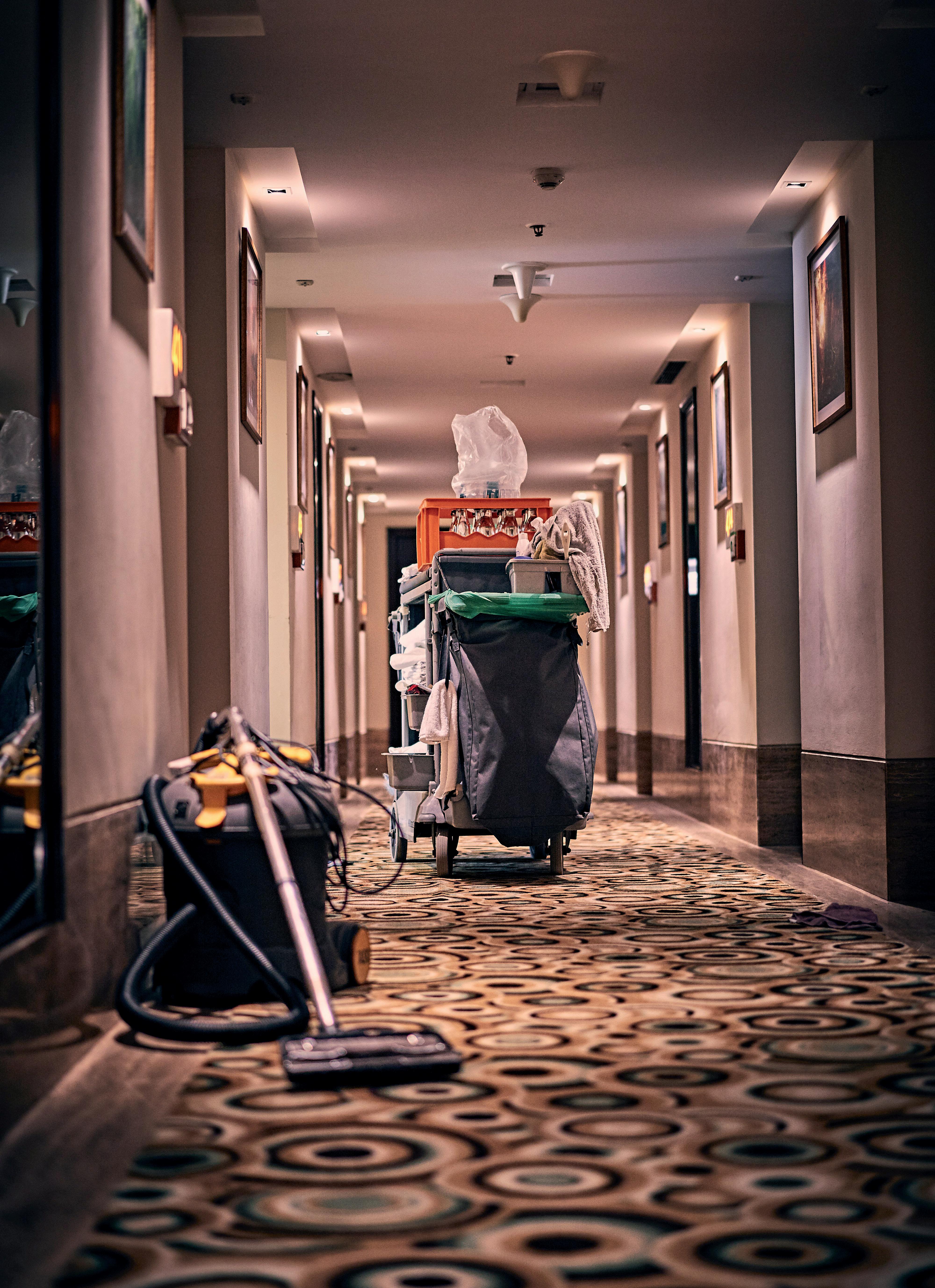
The decision to outsource housekeeping services is often a challenging one for hotel operators. Balancing practicality with financial considerations can make it feel daunting, particularly when weighing up what outsourcing might mean for control, quality, and staffing. However, when implemented thoughtfully, outsourcing can become a strategic advantage rather than a compromise.
Awidespread misconception is that outsourcing results in a loss of control over daily operations. In reality, it can empower hotels to take greater control by allowing managers to focus on their core priorities: revenue growth, guest satisfaction, and long-term business development. With the right provider, supported by clear communication and strong coordination, outsourced housekeeping teams can seamlessly meet the property’s standards and requirements.
Another common concern is service quality. Guests expect consistency and excellence, and some operators fear that outsourcing will dilute these standards. On the contrary, outsourcing can elevate service levels. Professional housekeeping companies specialise in delivering efficient, highquality outcomes, with trained staff who bring industry expertise and
consistent performance. Rather than lowering expectations, outsourcing often ensures guests receive reliable service aligned with the brand’s reputation.
Staffing concerns also play a role in the hesitation to outsource. The idea that existing employees will inevitably lose their jobs is not always accurate. Outsourcing can, in fact, create opportunities for staff redeployment, upskilling, or movement into more guest-facing roles where their talents directly enhance the visitor experience. This shift can improve morale and broaden career development opportunities for the team.
It is also worth noting that outsourcing is not reserved solely for large hotel chains. Smaller boutique properties, mid-sized operators, and luxury resorts can all benefit, provided they partner with a provider who understands their
unique requirements. The key lies in choosing a company that can tailor its services to the property’s scale, culture, and guest expectations. When considering costs, outsourcing can prove more affordable than many anticipate. Spreading expenses over a 12-month period often highlights efficiencies, particularly when compared with maintaining a full-time in-house workforce and covering associated benefits such as paid leave. The ability to access a flexible, scalable workforce without compromising service quality provides financial predictability and resilience in a competitive market.
Ultimately, outsourcing housekeeping is not about relinquishing control. Instead, it is about gaining strategic focus, ensuring quality, and strengthening the guest experience while maintaining financial efficiency. l
Industry leaders have supported the Government’s move to bring bigger events to local shores.
Tourism Industry Aotearoa (TIA) has welcomed the Government’s announcement of NZD 70 million in additional funding for Major Events and Tourism, describing it as a milestone moment for the sector.
The funding boost, announced by Minister of Tourism and Hospitality Hon Louise Upston, is being celebrated as a game-changing investment that will deliver benefits far beyond the immediate industry.
TIA Chief Executive Rebecca Ingram said the announcement of a globally
competitive major events investment package was very exciting, and that it will energise tourism businesses across the country.
“Major events are more than just moments of celebration, they are powerful economic catalysts. They attract visitors who spend on accommodation, hospitality, transport and experiences, while showcasing the host city and New Zealand to a worldwide audience,” she explained.
According to Ingram, the impact of such investment extends well


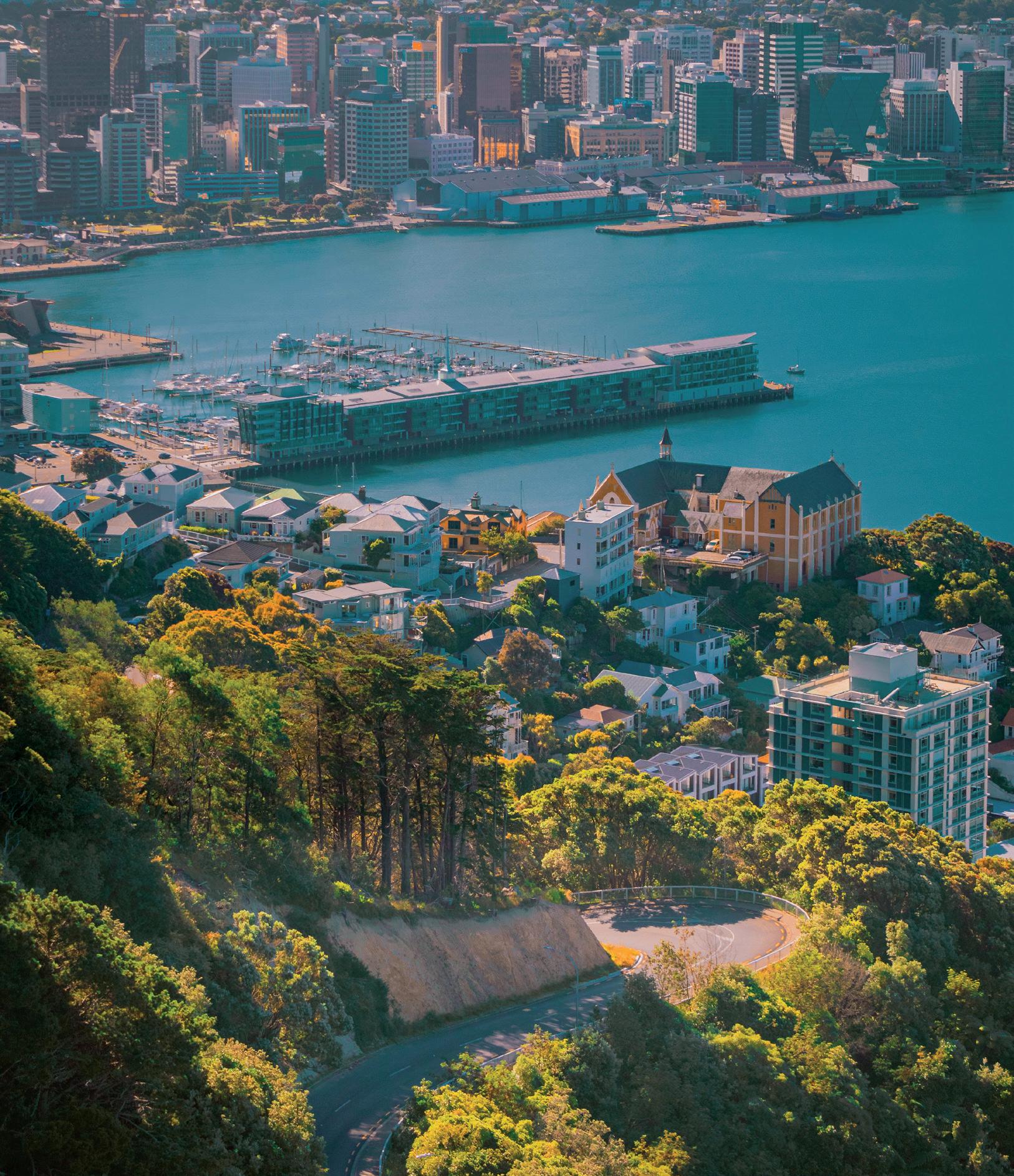

Major events are more than just moments of celebration, they are powerful economic catalysts. They attract visitors who spend on accommodation, hospitality, transport and experiences, while showcasing the host city and New Zealand to a worldwide audience,
beyond the event itself. It leaves behind infrastructure improvements, elevates community pride, and strengthens New Zealand’s international profile as a destination. Local communities benefit from the vibrancy and exposure, while Kiwis also share in the excitement, creating lasting memories.
She pointed to the past two weekends as an example, where the Springboks and All Blacks matches delivered sold-out stadiums in Wellington and Auckland, with both cities buzzing with energy and activity.
“This new level of investment puts New Zealand firmly back in the game, enabling us to host larger-scale events that inspire both domestic and international visitors to travel, connect and celebrate here. It is an investment not just in tourism but in our national identity and economic resilience,” Ingram said.
TIA believes the funding will ensure New Zealand remains competitive on the global stage, securing events that create opportunities for growth and community enrichment.
Nick Keene, Hospitality NZ’s Interim Chief Executive, said the
funding will return direct benefit to the hospitality sector.
“Large-scale events play a crucial role in supporting New Zealand’s economy, particularly for industries like ours that rely on visitor spending,” he said.
“Major attractions drive demand across the host city, from hotel bookings to restaurants, bars and cafés. The flow-on benefits touch almost every part of the hospitality sector, and often encourage people to travel to New Zealand and travel beyond the event location.”
Minister Louise Upston said it will drive economic activity and confidence across New Zealand.
“Major events, whether they are sports showdowns, the world’s most popular artists or well-loved favourites, can be a bonanza for the cities and regions which host them, supporting local jobs and incomes in the hospitality and retail sectors and beyond,” she said.
“That’s why we are significantly increasing Government investment in the events sector and opening it up to a wider range of opportunities, including concerts which haven’t previously been eligible for funding.”

There are countless ways hotel guests can enjoy eggs on the menu. Be it through room service or at an in-house restaurant, eggs are more than just an ingredient, they are an expected breakfast staple.
From omelettes to scrambled, poached or sunny-side up, every guest will have their preference on how they like their eggs cooked.
Personalisation can not only be important to guests, but also an integral factor of the menu’s appeal and competitive edge. However, the delay and inconvenience of customised orders can potentially delay kitchen operations and cause unnecessary stress for chefs.
While scrambled eggs are a staple on any menu, guest demand for personalisation has elevated the humble breakfast dish to become an upmarket option. Although travellers

are on the hunt for dishes that cater to their preferences, there is a growing trend for kitchens to go the extra mile to meet their satisfaction.
Common guest requests can impact the recipe, such as using milk instead of water or cooking with butter instead of oil. Although many can be quick to claim they can taste the difference, it is important to avoid offering too many opportunities for guests to make simple but timely changes to their order.
The method of cooking a simple dish like scrambled eggs varies in each establishment. The focus of serving something that takes less time to cook but more complicated
to customise has become a frequent sight. Scrambled eggs are largely favoured when light and fluffy, rather than served flat like an omelette. Instead of taking extra time in the cooking phase, many kitchens now offer add-ons as a way to make their dishes stand out.
Add-ons have long been a way for guests to add their own personal touch, without creating an inconvenience in the kitchen. Whether it's by adding smoked salmon, a side salad or an additional serving of sauce, offering guests the option to personalise their order in this way won't cause significant disruptions. In some cases, eateries
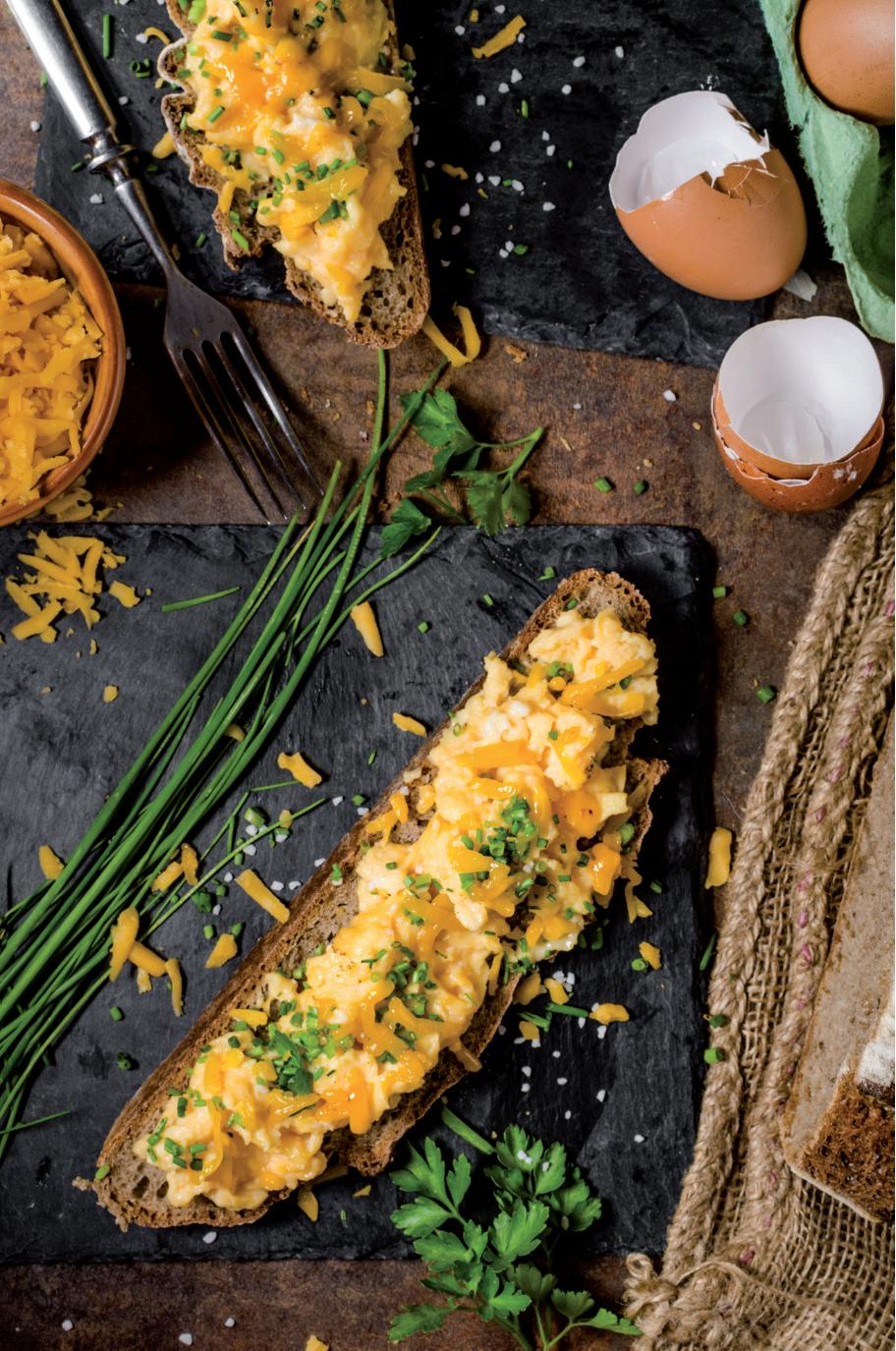
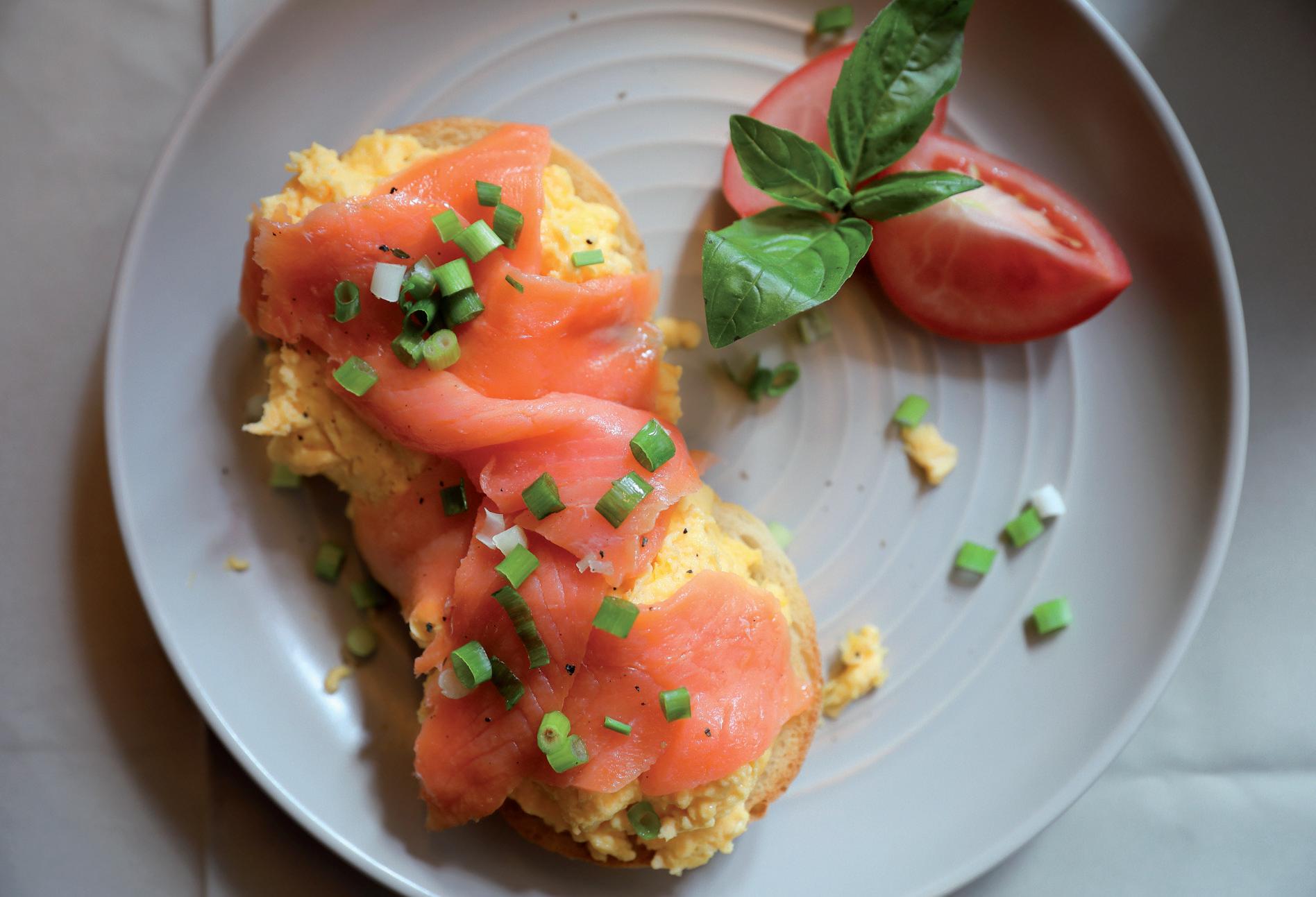
have even introduced a limit on how many add-ons they allow.
Including too many add-on options on the menu can significantly increase inventory costs, especially with fresh or perishable ingredients. This will require chefs to carefully consider the shelf life of ingredients in order to minimise waste.
More add-ons will mean slower cooking times. It will also mean kitchen teams will need to be trained on how to handle each combination, adding to the overall complexity of the kitchen workflow.
Too many options can overwhelm guests when ordering. It can lead to longer ordering times and potentially reduce sales. Introducing add-on options will need to be carefully considered by eateries and clearly presented in a concise way to avoid customer confusion. It will also mean that waitstaff must be wellinformed about sudden shortages in the kitchen, potential cost increases and any allergens that guests may ask about. Making the add-on menu too complicated can distract from the dish at hand and make it too confusing for guests to choose from.
Instead, showcasing a refined menu could have wider benefits. An example of this could be the choice of bread. Stating that scrambled eggs are served on white toast, but freshly baked sourdough is available for an extra cost, is a simple decision for guests to make. The same approach could be applied to guests wanting to add a side salad or extra bacon.
By serving guests quality rather than quantity, establishments are able to garner a stronger reputation and provide a better customer experience. l

Sacro, a New Zealand-made premium recovery beverage designed to support guests before, during, and after alcohol consumption, is the perfect addition to any hotel mini bar, especially in the lead up to the busy season.
By offering a functional beverage, such as Sacro, hotels can improve the guest experience and appeal to a shared target audience.
The target market for Sacro is the same demographic that hotels cater to, with a shared demographic scattered throughout the general mix of those travelling for business, a luxury experience, leisure or wellness, as well as families and event attendees. Specifically, individuals within this demographic who consume alcohol during their visit or stay are looking for a way to recover and feel better the next day.
By stocking Sacro, a hotel not only offers a functional solution to a common guest problem but also demonstrates an understanding of modern wellness trends, further enhancing the guest experience.
Ashlee Summers, co-founder, said Sacro supports rehydration with electrolytes and offers restorative benefits with the added Vitamin C and high-dose of B Vitamins.
“This helps to support energy and combat fatigue often experienced after consuming alcohol the following morning. It is especially helpful for guests who value their health and wellness, prioritise self-care and routine, and require productivity during their stay,” said Summers.
“A convenient, low-calorie option that gives an instant feeling of refreshment on the first sip, we have found has large appeal to our target

audience.”
Sacro positions itself as a "health and wellness, lifestyle brand" and a "functional beverage." This aligns with the hospitality industry's growing trend of offering amenities that promote guest well-being. Instead of simply providing a standard minibar with high-sugar drinks, a hotel can offer Sacro as a sophisticated solution to a common problem: the morning after a night out. Its key ingredient, DHM, and its ability to aid in the elimination of alcohol's toxic byproducts provide a tangible wellness benefit that goes beyond simple rehydration.
The presence of a product like Sacro in the minibar can improve a guest's perception of the hotel. It shows that the hotel understands and caters to the modern traveller's focus on wellness and functionality. This attention to detail and thoughtful amenity can create a lasting positive impression, leading to higher guest satisfaction and a stronger brand reputation.
“By stocking Sacro, a hotel signals that its minibar is not just a source of revenue but a curated collection of premium products. Sacro’s unique "first-to-market" feature of containing DHM positions it as an exclusive and sophisticated offering. This aligns with the luxury and lifestyle positioning many hotels aim for, setting their brand apart from competitors by providing a differentiated amenity.” l



contactus@barkersprofessional.nz
While tourists consistently flock to European hotspots like France, Spain and Italy year after year, a major tourism market in central Europe has made its mark as the next big destination for travellers from all over the world.
Countries like Germany, Denmark, Belgium and Finland are often characterised as cold, winteresque climates, but their appeal has become a year-round attraction.
From lush forests to historic architecture and their own unique cuisines, these European nations have become more than just a stopover or somewhere travellers would prefer to pass through.
“Guest demand for high-quality resorts in both longstanding international hotspots and upand-coming leisure destinations is growing, leading to increased interest from owners in developing resort hotels under Hilton brands,” said Patrick Fitzgibbon, Senior Vice President of Development of Europe, the Middle East and Africa at Hilton.
TFE Hotels recently launched its A by Adina brand in the European market. CEO Antony Ritch said while guests may be familiar with the brand locally, the European market offered something truly remarkable.
“Whilst our A by Adina Sydney guests are wowed by the Sky Lobby and the spectacular views from Dean & Nancy on 22 over Sydney’s CBD, guests to A by Adina Vienna

Danube will naturally gravitate to the spectacular infinity pool, overlooking the Danube River across to St. Franziskus Church in Vienna’s old town,” he said.
The top countries in Europe’s construction pipeline are the United Kingdom (306 projects), Germany (178 projects), France (120 projects), Turkey (117 projects), and Portugal (114 projects).
These five countries combined account for 50 percent of the projects and 47 percent of the rooms in Europe’s total pipeline and are expected to lead in new hotel openings through 2026.
Last year, Europe experienced significant growth in new hotel openings during the second quarter, with 81 hotels and 10,569 rooms opening, a 72 percent increase compared to the first quarter. In total, 128 new hotels with 16,829 rooms opened throughout Europe in the first and second quarters.
Lodging Econometrics analysts forecast an additional 202 new hotels with 27,106 rooms to open in the third and fourth quarters, bringing the total forecast for new openings in 2024 to 330 hotels with 43,935 rooms. l



TFE Hotels has announced its A by Adina brand will launch in Berlin, following its expansion to Europe last year.


Location, location, location.
A by Adina Berlin
Kurfürstendamm is checking into a prime spot on one of the most famous avenues in Berlin.
Set to open in autumn 2027, the new-build A by Adina Berlin Kurfürstendamm will anchor the vibrant FÜRST urban quarter, offering design-led studios and apartments, alongside a world-class restaurant and bar and wellness facilities, in an area of Berlin renowned for its upscale shopping, dining, and vibrant atmosphere.
The new A by Adina will mark the
brand’s debut in Germany and become TFE Hotels’ fourth property in Berlin, a city that also proudly hosts the award-winning innovation hub, MMNT Lab,
Image credit: TFE Hotels, A by Adina Berlin
This announcement followed the brand’s European debut in Vienna, which welcomed guests in April 2025, and builds on the success of A by Adina Sydney and A by Adina Canberra, which opened in Australia in 2021 as the flagships for the brand’s elevated apartment hotel experience.
With more A by Adinas in the global pipeline, the brand is rapidly becoming synonymous with sophisticated stays blending the comfort of apartment living with premium hotel service and amenities, delivered in first-rate locations.
While every A by Adina location has been thoughtfully chosen to blend seamlessly within its surroundings, there’s always a contemporary Australian twist at the heart of every stay. Architectural finishes and thoughtfully designed interiors are hallmarks, as is the intuitive service that allows corporate and lifestyle travellers to enjoy the best of the city on their terms.
“A by Adina is redefining the apartment hotel category with premium hotels in standout locations,” said TFE Hotels’ CEO, Antony Ritch.
“The new A by Adina Berlin Kurfürstendamm is in an incredible neighbourhood that puts our guests in the heart of the best retail the city has to offer.”
Ritch said with each new opening, TFE Hotels was building momentum and delivering a curated experience that reflects the local culture while maintaining the brand’s signature touches.
“The new A by Adina will mark the brand’s debut in Germany and become TFE Hotels’ fourth property in Berlin, a city that also proudly hosts the award-winning innovation hub, MMNT Lab,” Ritch said.
“The hotel is also a key addition to the FÜRST development, which is transforming the former Ku’dammKarree into a dynamic hub for culture, hospitality, and commerce.
“Guests will enjoy designer amenities and hotel services, combined with a laid-back Australian approach to hospitality that gives guests all the freedom and flexibility to enjoy their own stylish city pad for as little or as long as they like.”
“We are gathering great momentum with our A by Adina expansion which offers exciting new opportunities to connect clients with premium stays in iconic global locations,” Ritch said.
“Whether it’s a city break in Vienna, hitting the shopping strip in Berlin, cultural escape in Canberra, or a sojourn in Sydney, A by Adina offers a refined home base for modern travellers." l
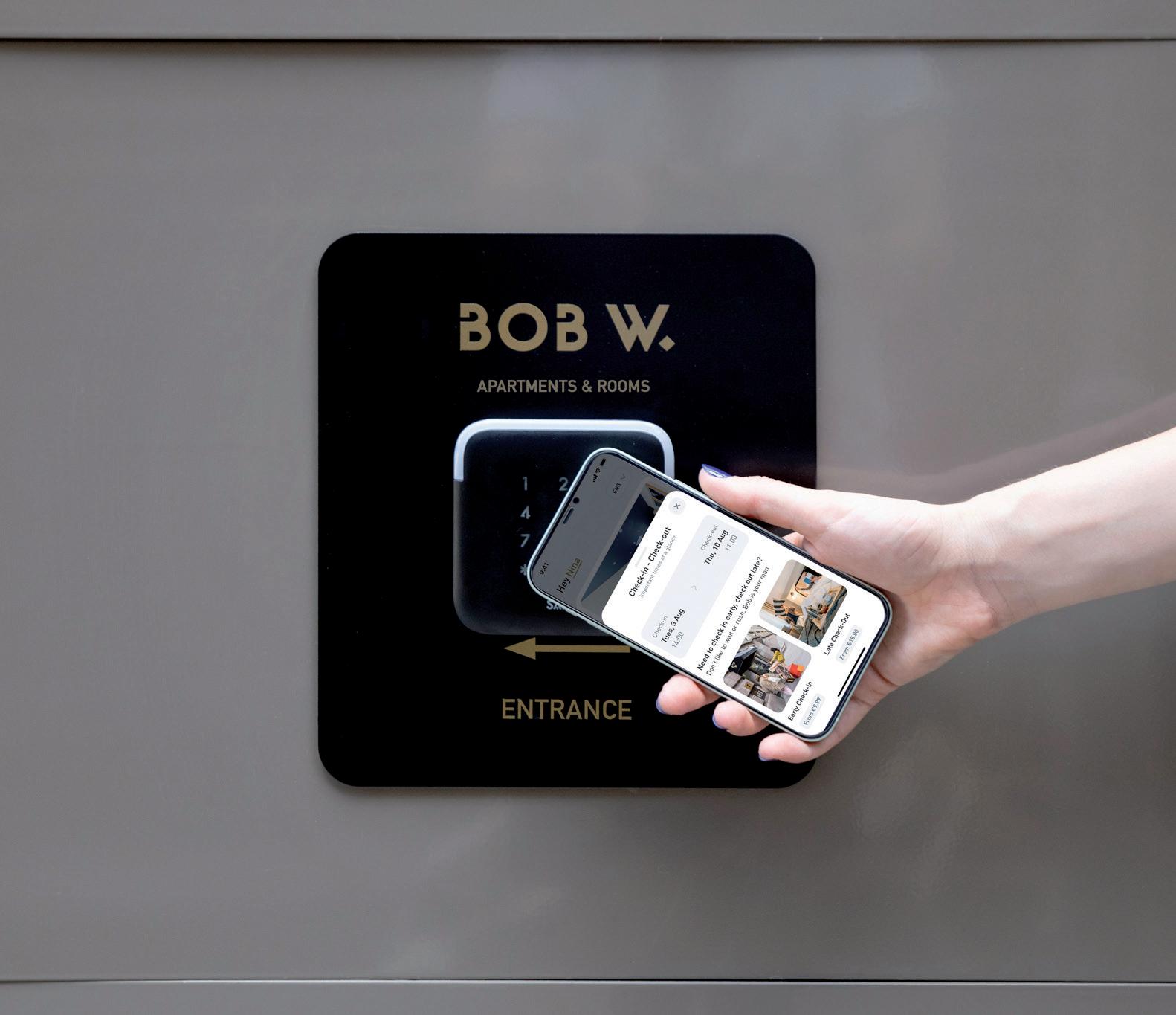

Bob W has signed a longterm lease for a serviced apartment building in Munich’s Arnulfpark, marking the operator’s fifth property in the Bavarian capital as it continues to expand across Europe.
The five-storey, 1,500 sqm property is located on LilliPalmer-Strasse in Munich’s thriving Tech Quarter. Formerly operated as a boarding house, the property is joining the Bob W portfolio and will open doors later this winter.
Four floors will be converted into fully furnished studio and onebedroom Bob W apartments for both short- and long-term stays, while the top floor will continue to be used as office space. An underground garage will provide onsite parking for guests.
Directly adjacent to Donnersbergerbrücke station, the site offers excellent connectivity to the city centre. Arnulfpark has

become one of Munich’s most dynamic mixed-use districts and is home to the German headquarters of global companies, including Google, Apple, Salesforce, and Check24, supporting both the company’s corporate travel and tourism strategies.
The building will undergo a comprehensive refurbishment in 2026, repositioning the asset to meet growing demand for flexible, tech-powered accommodation from international business travellers and the local workforce. With Bob W’s digital-first model that combines local design, sustainability, and seamless guest technology, the property will serve as a modern alternative to traditional hotels and short-term rentals.
The asset was acquired by Peterborough Capital in partnership with DW Real Estate, who will oversee the redevelopment.
“Munich is one of Europe’s most supply-constrained hospitality markets, and Arnulfpark is exactly the type of location where we see long-term opportunity. With our techpowered, design-led apartments, we’re helping landlords transform
existing assets into sustainable, flexible accommodation while giving guests and companies a smarter alternative to hotels and short-term rentals,” said Niko Karstikko, Cofounder and CEO of Bob W.
“Arnulfpark has emerged as one of Munich’s most dynamic districts, and we see strong long-term demand for high-quality, flexible accommodation here,” said Dominik Sailer, Managing Director at DW Real Estate.
“Partnering with Bob W allows us to reposition the building with an operator that not only brings proven expertise in serviced apartments, but also a digital-first model and sustainable approach that align with how people want to live and work today.”
The Arnulfpark project follows Bob W’s three Munich properties in Schwabing, Old Town and Münchner Freiheit announced earlier this year, as well as Munich Airport, bringing the operator’s total footprint in the city to five properties.
Germany remains one of Bob W’s key growth markets, with a pipeline of signed properties across major cities including Berlin, Hamburg, Stuttgart, Cologne and Dortmund. l
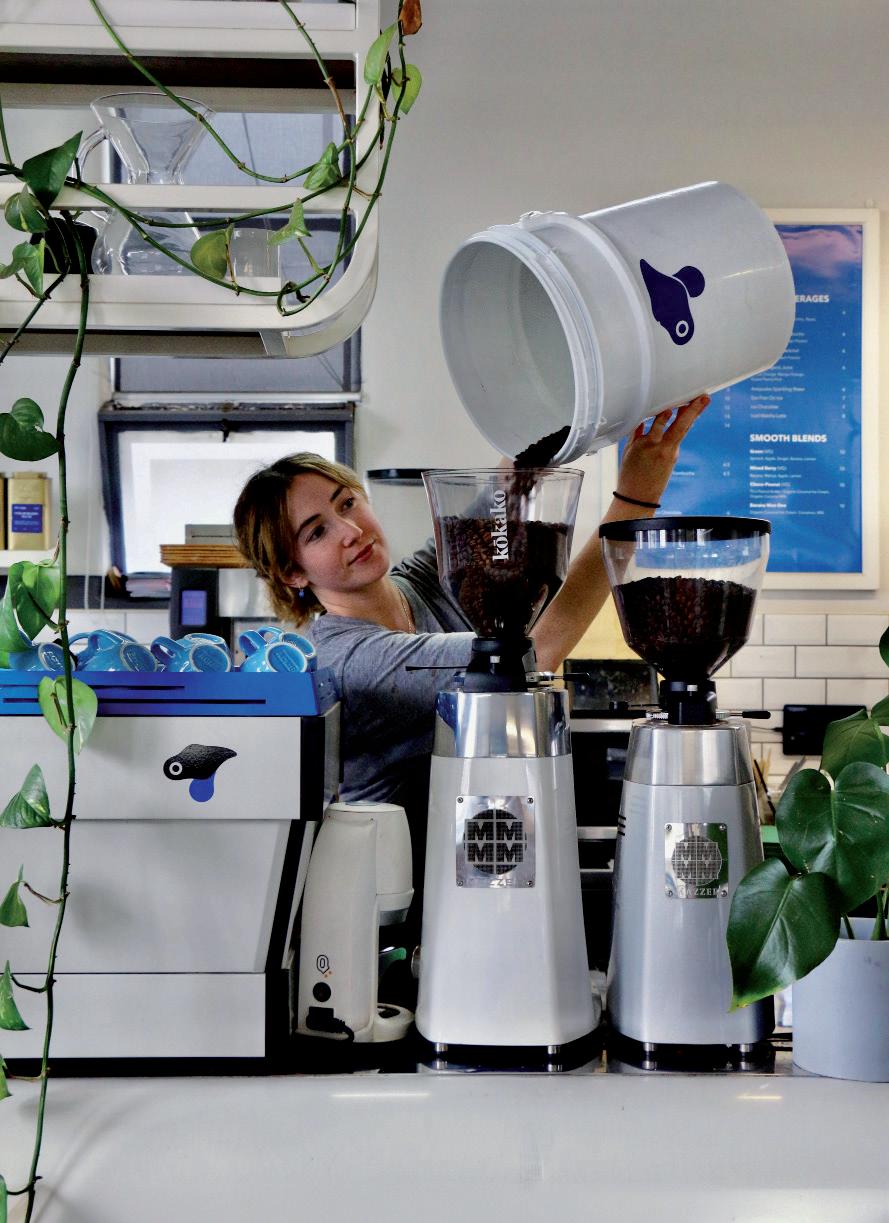
Roasted in Tāmaki Makaurau, proudly poured at over 100 cafes and restaurants across Aotearoa.
1Hotels, the mission-driven luxury lifestyle hotel brand founded by hospitality visionary Barry Sternlicht, has announced the official opening of 1 Hotel Copenhagen, a transformative reimagining of the historic Skt. Petri.


Copenhagen is one of the world's most forwardthinking cities and a beacon of sustainability. So it makes sense that 1 Hotels, a purpose-driven brand built around sustainable travel, chose the city for its first location in continental Europe.
Drawing on Copenhagen's commitment to climate leadership and eco-conscious living, the hotel pairs Nordic craftsmanship with a deep connection to nature. Guests will find calming interiors shaped by natural materials, living landscapes that shift with the seasons, and a lifestyle experience designed to spark curiosity, creativity, and well-being. The central location at Krystalgade 22 offers easy access to the city's most iconic attractions, including Tivoli Gardens, the Round Tower, Rosenborg Castle, and the Botanical Garden.
"Copenhagen has always held a special place in my heart," said Barry Sternlicht, Founder of 1 Hotels and Chairman of Starwood Hotels.
"There's an ease and beauty to life here, how the Danes live with a true creative spirit, warmth, tolerance and hospitality, how design and sustainability are seamlessly woven into the culture, and how nature is embraced in the most effortless, elegant way. This city reflects everything 1 Hotels stands for, so opening a hotel here isn't just a milestone. It feels deeply personal. It's like finding a kindred spirit in a city."
The transformation of the former Skt. Petri honours the building's architectural heritage while introducing a nature-led sensibility. Interiors feature handcrafted Danish furnishings, sculptural lighting, and layered textures that reflect
Image credit: Lobby at 1 Hotel Copenhaged, Mikkel Vang
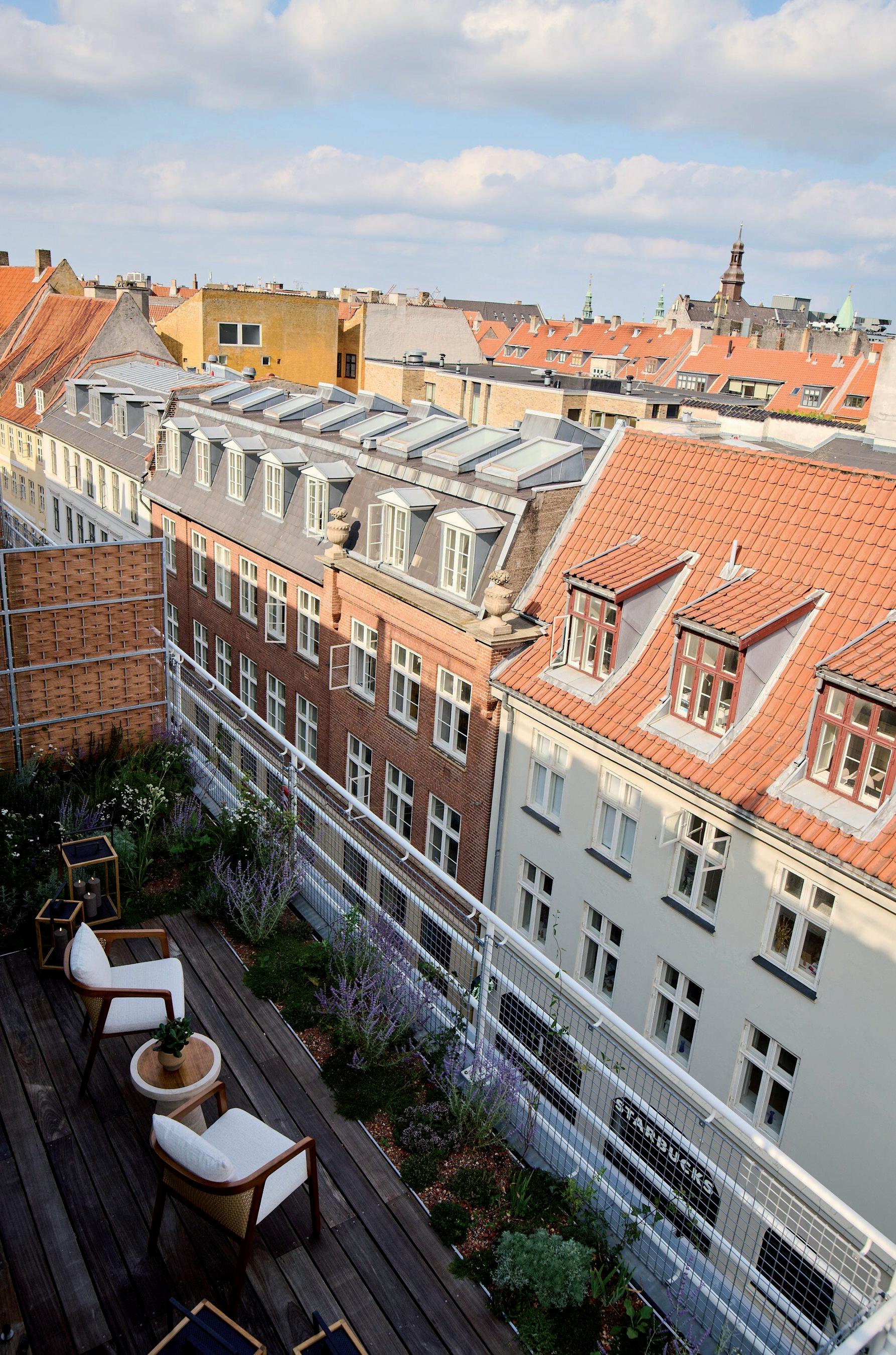

Image credit:
(Top) Terrace View at 1 Hotel Copenhagen, (Bottom) Flora House Balcony at 1 Hotel Copenhagen, Mikkel Vang
the organic beauty of the Nordic landscape. Lush greenery appears throughout, from trees rising in the atrium to terraces framed with vegetation to pocket gardens, creating an environment that is alive and distinctly of place.
"Design is everything in Copenhagen, but it's never just about how something looks," said Raul Leal, CEO of Starwood Hotels.
"It's about the way it functions, the way it feels, the materials used, and the story it tells. With 1 Hotel Copenhagen, we've created a space that speaks to that holistic approach, honouring Danish craft, integrating local materials, and embracing biophilic design in a way that's uniquely Nordic."
The hotel's outdoor terraces are designed as green sanctuaries filled with wildflowers and seasonal herbs like peppermint, marjoram, thyme, and lavender. A dramatic living wall brings a lush, biophilic element to the façade, offering a connection to nature while adding greenery to the cityscape. An on-site bee hotel sheds light on the importance of urban pollinators and the role they play in local ecosystems.
Across its 252 rooms and 30 suites, 1 Hotel Copenhagen invites guests to unwind in serene spaces defined by organic textures, natural light, and locally inspired details. Rooms feature warm, tactile finishes like reclaimed wood, woven textiles, sustainably sourced bedding, and mineralbased paints. Bathrooms continue the nature-led aesthetic with stone basins, rainfall showers, and leafy accents that evoke a forest retreat.
In-room amenities reflect the brand's holistic approach to wellbeing, with yoga mats and bath products by Bamford, a pioneer in organic and regenerative selfcare. Infused with soothing notes of geranium, lavender, peppermint, and tonka, the Bamford bath collection is designed to awaken the senses and restore balance to body and mind. Reinforcing 1 Hotels' commitment to sourcing sustainably and locally, the minibars are stocked with Rebæl sodas, Gro cold-pressed juices, True Gum, and Bornholm Pære Snaps, showcasing Denmark's innovative and low-impact culinary scene. l
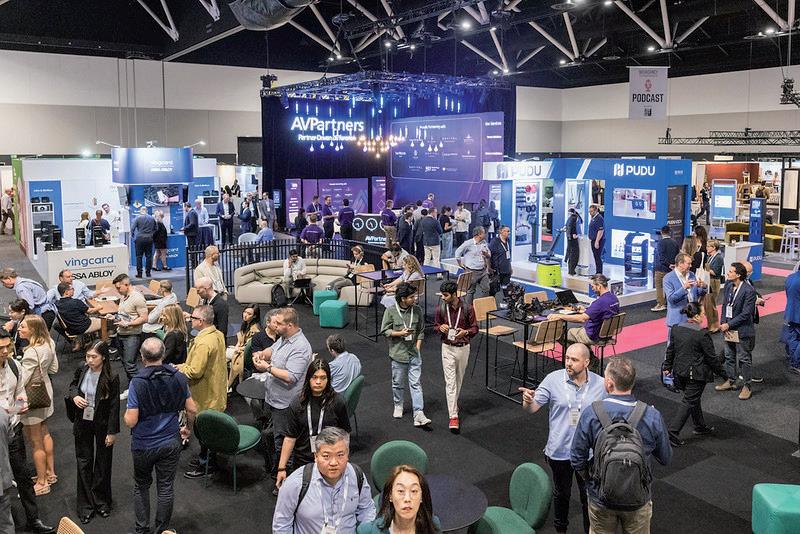


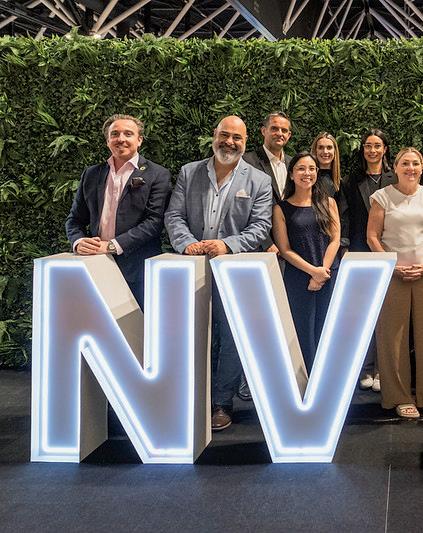
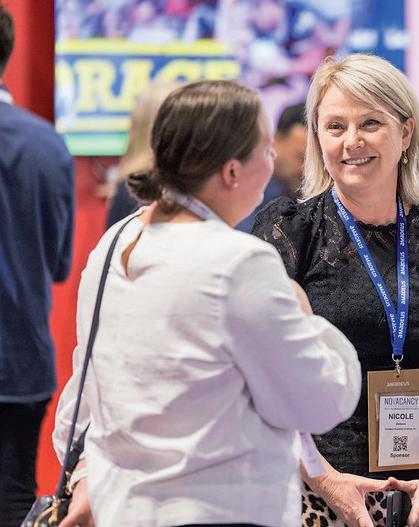
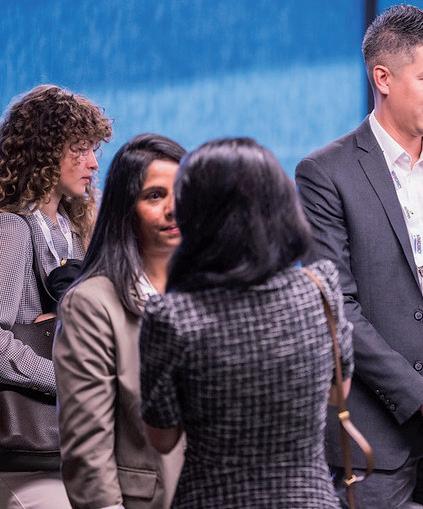


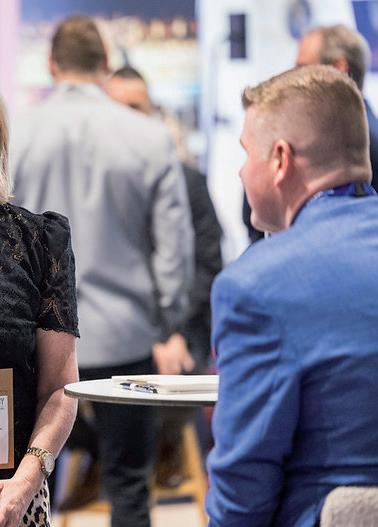
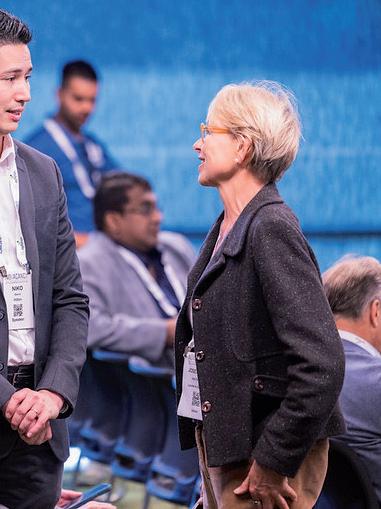
NoVacancy 2025 saw packed theatres and industryleading summits that saw great minds collaborate to navigate the sector’s future.
vent Director Matt Gatfield said that practical solutions and the latest innovations were highlights of the show, as the opportunity for attendees to connect with people to help tackle the biggest industry challenges.
“Whether you wanted to get ahead on technology, refresh your approach to guest experience, or simply see what’s new, NoVacancy was where you’d find your next idea or partnership. If you want to keep your business ahead of the curve, this was the place to be,” said Gatfield.
A key theme of this year’s expo was the spotlight on what really matters to those in the industry right now. Gatfield said attendees can expect to dive deep into digital transformation, AI and automation, staffing and leadership, guest experiences, new F&B trends, energy efficiency, sustainability and many other crucial industry priorities.
He said the sessions were clear standouts of the expo, especially where the topic of conversation focused on driving revenue in a
tough market, adapting to changing guest expectations and leveraging tech, from PMS to guest apps to biometrics.
Gatfield added that attendees also had a front-row seat to discussions on sustainability (without sacrificing the bottom line), the rise of hybrid accommodation models, and new ways to attract and delight younger guests.
There were a total of nine sectorspecific summits running over two action-packed days, each designed to allow attendees to drill down into the topics that matter most to their business.
The networking opportunities at NoVacancy are one of the main reasons people come back year after year. Gatfield said it was a chance to connect with operators, owners, suppliers and peers from every corner of the accommodation sector.
“Whether you’re a General Manager, investor, asset manager, F&B leader, or tech specialist, you could meet people who understand your challenges and ambitions.” l

Adam Seskis, CEO at RMS, said travellers are increasingly looking for authentic, experience-led stays, which have driven demand for more curated, personalised and memorable getaways.
He said NoVacancy is a great chance to connect with hoteliers and talk about what really matters to them right now. RMS aimed to demonstrate how embedded payments can enhance cash flow and security, as well as how stronger direct booking strategies provide hotels with greater control over guest relationships while reducing their reliance on third parties.
NoVacancy was also the perfect opportunity for RMS to announce its new partnership with SiteMinder. He said this collaboration will help customers make faster, smarter

pricing decisions that drive revenue and reduce operational complexity.
“Ultimately, while it's about giving hoteliers the tools to run leaner, more efficient operations, it's also about freeing them up to focus on what really matters: delivering truly standout experiences for their guests,” said Seskis.
At the same time, Seskis said operators have been working hard to increase their share of direct bookings, reduce their reliance on online travel agencies, and strengthen their personal relationships with guests. Payments have also emerged as an important
Adam Sekis

area of innovation, with automation and flexible instalment options increasingly becoming the norm.
In addition, rising costs and increasing demand for eco-conscious travel are prompting operators to operate leaner, smarter, and more sustainably. Most importantly, there’s a growing shift toward convergence over complexity. Operators need all their data in one place, or at least in a deeply connected system. What matters now is how seamlessly data flows between applications. Deeper integrations and open, portable data are becoming essential for moving faster, executing better, and staying competitive.
“Technology is what ties the whole guest journey together. From the moment someone starts looking for
a place to stay, to booking, paying and checking in, the software is working in the background to keep everything smooth, consistent and seamless,” said Seskis.
“These days, guests expect to manage pretty much everything from their phone. That could mean paying securely through a mobile link, checking in without touching a front desk, or getting personalised updates during their stay.”
For operators, Seskis said software handles the heavy lifting behind the scenes. Integrated PMS platforms bring together everything from housekeeping to maintenance to payments, keeping things running smoothly so staff can spend much less time on admin and more time looking after guests.
Larger hotel chains and independent operators tend to have very different software needs. Big groups usually need complex features like multi-property automation, enterprise-level security, and tools to manage standardised operations across multiple locations from a centralised hub. They're also more likely to require custom integrations and highly detailed reporting.
Independents, on the other hand, often want something much more straightforward, such as software that’s easy to use, quick to set up, and rolls everyday tasks into one single, intuitive system.
But Seskis added that this gap has started to close, and fast. With the rise of Agentic AI, smaller
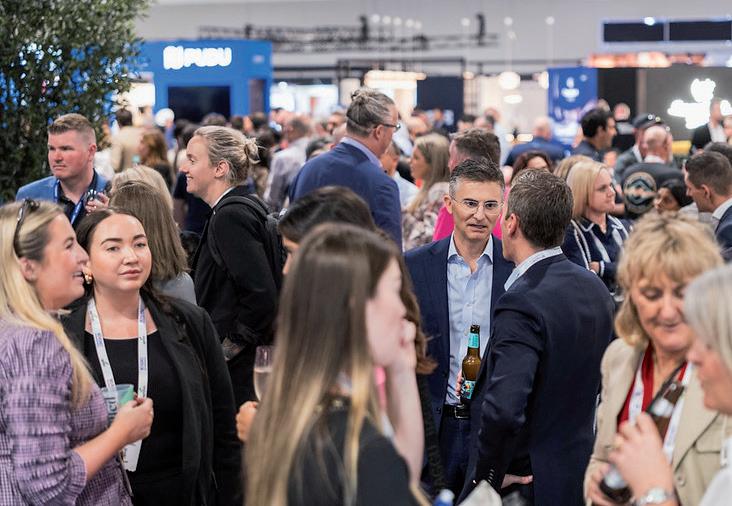
Ultimately, while it's about giving hoteliers the tools to run leaner, more efficient operations, it's also about freeing them up to focus on what really matters: delivering truly standout experiences for their guests,
operators now have access to powerful capabilities that used to be out of reach. They can automate complex workflows, personalise guest experiences at scale, and move just as fast, if not faster, than the big players. He said it’s levelling the playing field and giving independents a real edge when it comes to delivering a first-class guest experience.
“That’s why providers like RMS focus on flexibility, offering configurable setups that adapt to each operator’s size, goals, and way of working, instead of forcing a onesize-fits-all approach.”
Seskis said sustainability isn’t just a nice-to-have or a marketing buzzword anymore. Instead, it’s become a core part of how hospitality businesses operate.
“Tech is playing a big role in making it happen. Operators are using software to track and cut down on energy use, fine-tune staffing to avoid waste, and switch to paperless systems that are better for the planet. Some hotels are even using tech that can monitor food waste; it’s constantly evolving.”
For boutique hotels especially, finding that sweet spot between offering a premium guest experience and staying sustainable can be tricky, but that’s where tech can help to bridge the gap.
“Being able to show real progress with clear, data-backed reporting isn’t just responsible, but it’s now a competitive edge.” l
For Roy Chan Kwok Kui, his passion for the culinary arts was ignited by his family’s connection to cooking and food, most importantly his father’s work at sea as a chef.
When he began his culinary apprenticeship,
Chan Kwok Kui worked with Michelin-starred chefs during what he called an eyeopening experience. He said watching the chefs use seasonal ingredients and present traditional dishes with innovative cooking methods left a lasting impression on him.
When in the kitchen, Chan Kwok Kui has enjoyed working with fresh ingredients and experimenting with new cooking techniques to create unique flavours. He said his style has emphasised a balance between tradition and innovation.
Chan Kwok Kui now works as the Executive Sous Chef at the Hari Hong Kong, a luxury hotel in the heart of Hong Kong Island. Recently, he has explored using melon as a central theme. Along with the kitchen team, Chan Kwok Kui has created dishes such as cantaloupe melon risotto, paired with gorgonzola and sorrel, blending classic elements with innovative twists.
Chan Kwok Kui has a particular fondness for porcini mushrooms due to their smoky, meaty and nutty flavour profiles. Unlike many other mushrooms, porcini retain their

It's crucial for us to maintain a focus on quality while researching sustainable practices. We’ve also begun pursuing accreditation in sustainable development,
unique taste even after drying and cooking. He said that he has loved incorporating them into risottos, where their texture and flavour truly shine.
He said the Hong Kong catering industry will face several challenges, including changing consumer demands and the need for sustainable growth.
“It's crucial for us to maintain a focus on quality while researching sustainable practices. We’ve also begun pursuing accreditation in sustainable development,” he added.
To develop a distinct style, Chan Kwok Kui has believed in the principle that simplicity is key.
“Making thoughtful choices based
on this idea can help shape a unique culinary identity.”
Currently, Chan Kwok Kui has continued to work on new recipes for his upcoming seasonal menu. He said he was excited to be incorporating chestnuts in various dishes, which are perfect for winter.
Chan Kwok Kui and his team have aimed to offer both traditional and innovative dishes to provide all customers with unique and memorable dining experiences.
Reflecting on his career to date, Chan Kwok Kui expressed his gratitude to his friend, Francesco Gava and The Hari Kong Kong for providing him with the incredible opportunity. l
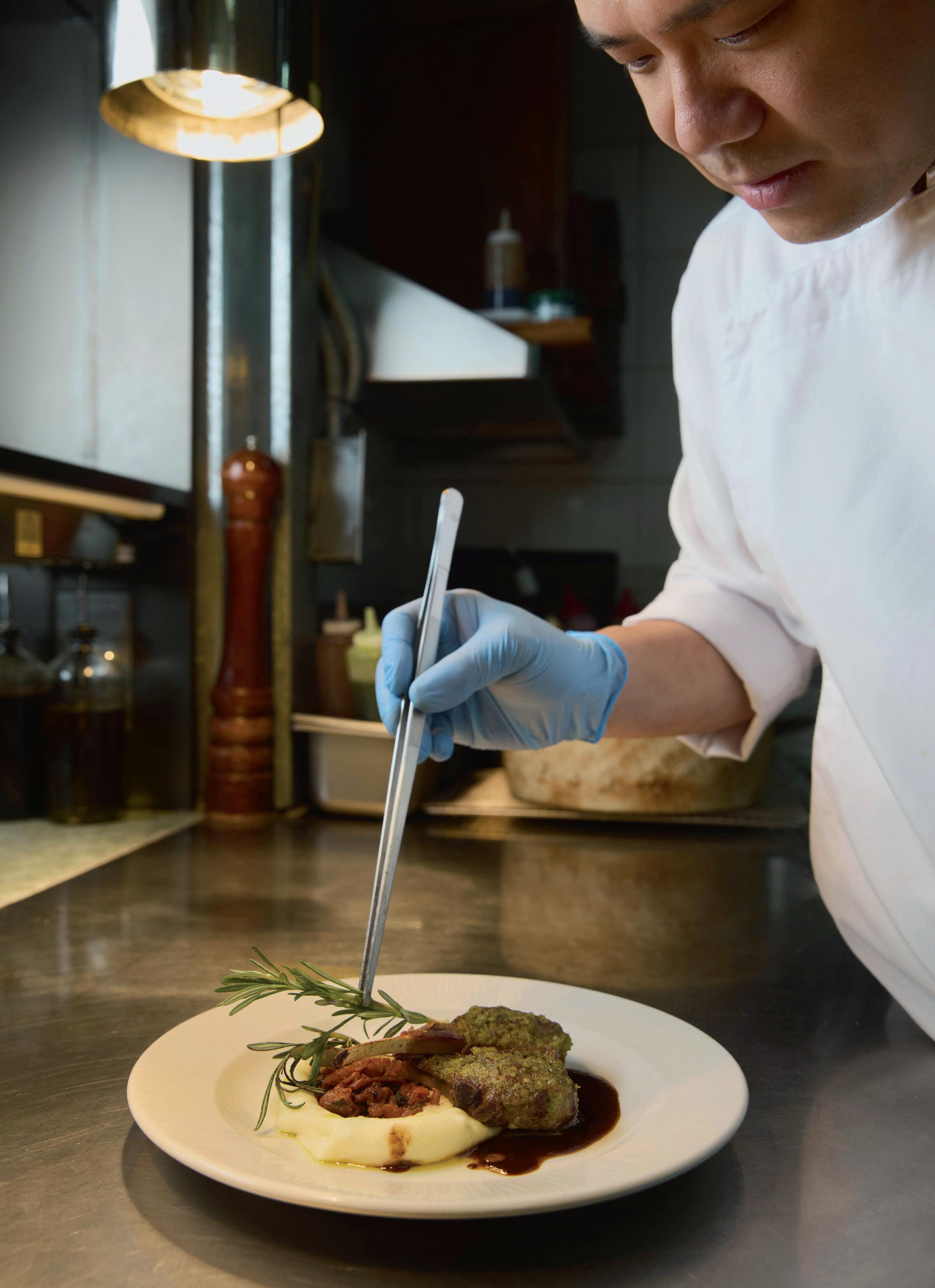
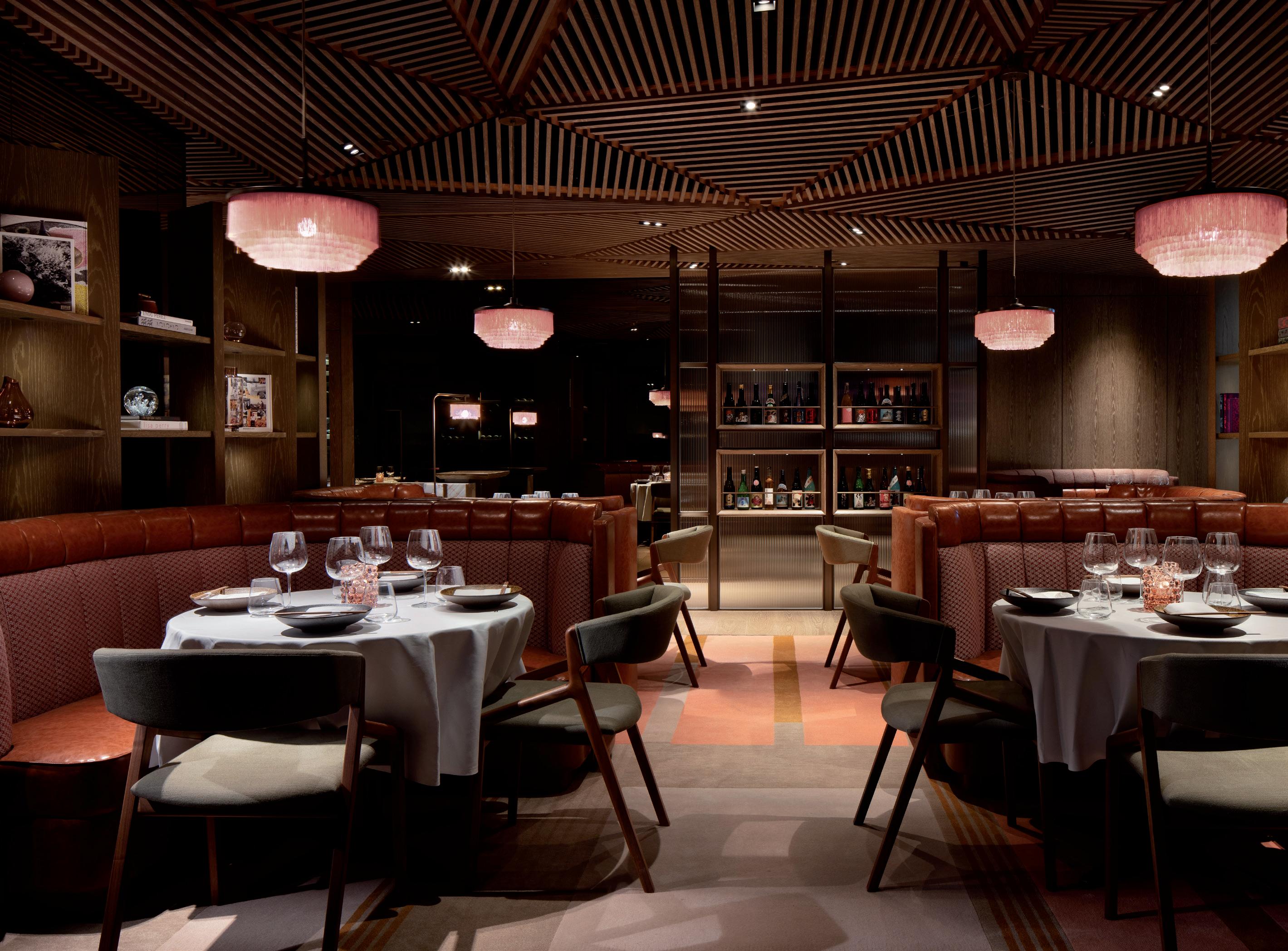
For Edward Snoeks, every day is a blend of strategy and service. Snoeks oversees hotel operations, collaborating with his team to ensure guests leave with smiles on their faces, while balancing immediate needs with long-term goals that align with Harilela Hotels.

With over 30 years in luxury hospitality across Europe and Asia under his belt, Snoeks’ career started when he left the Netherlands for the sub-tropical seas of Hong Kong in 1994 to work for The Regent Hong Kong’s food and beverage department. This led to various hotel management roles across Asia.
Snoeks said The Hari Hong Kong’s commitment to quality and sustainability attracted him to the property.
“My first impression was that the place was a stunning blend of design and warm hospitality, reflecting the Harilela Family’s heritage of impeccable service,” he said.
He has admired the hotel’s design, for example, the asymmetrical wooden ceiling in Zoku embodies the Japanese art of origami, while the lush green wall adds a refreshing touch. He said the beautiful suites with private terraces perfectly blend luxury and comfort.
As the hotel celebrates its 5th

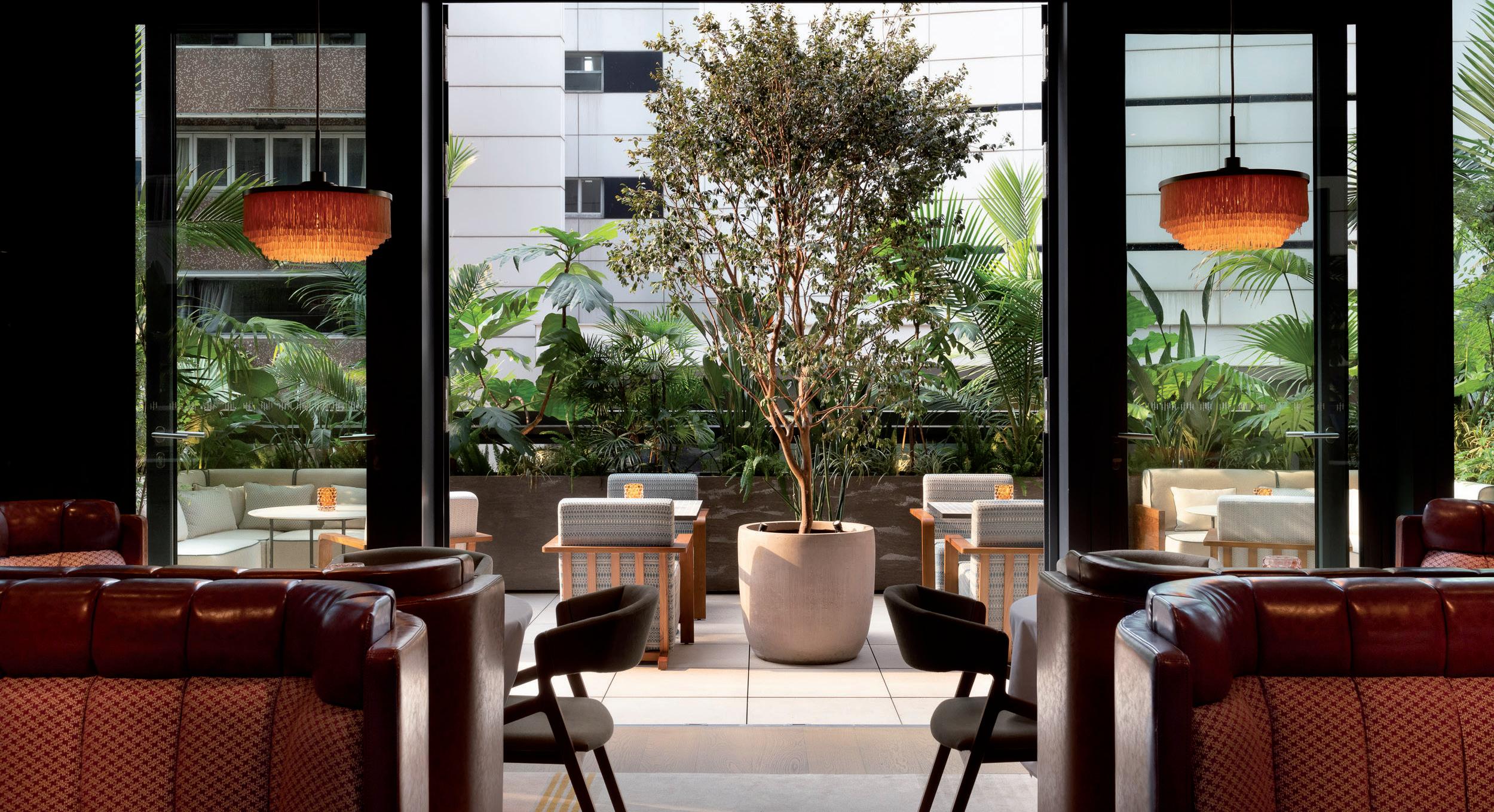
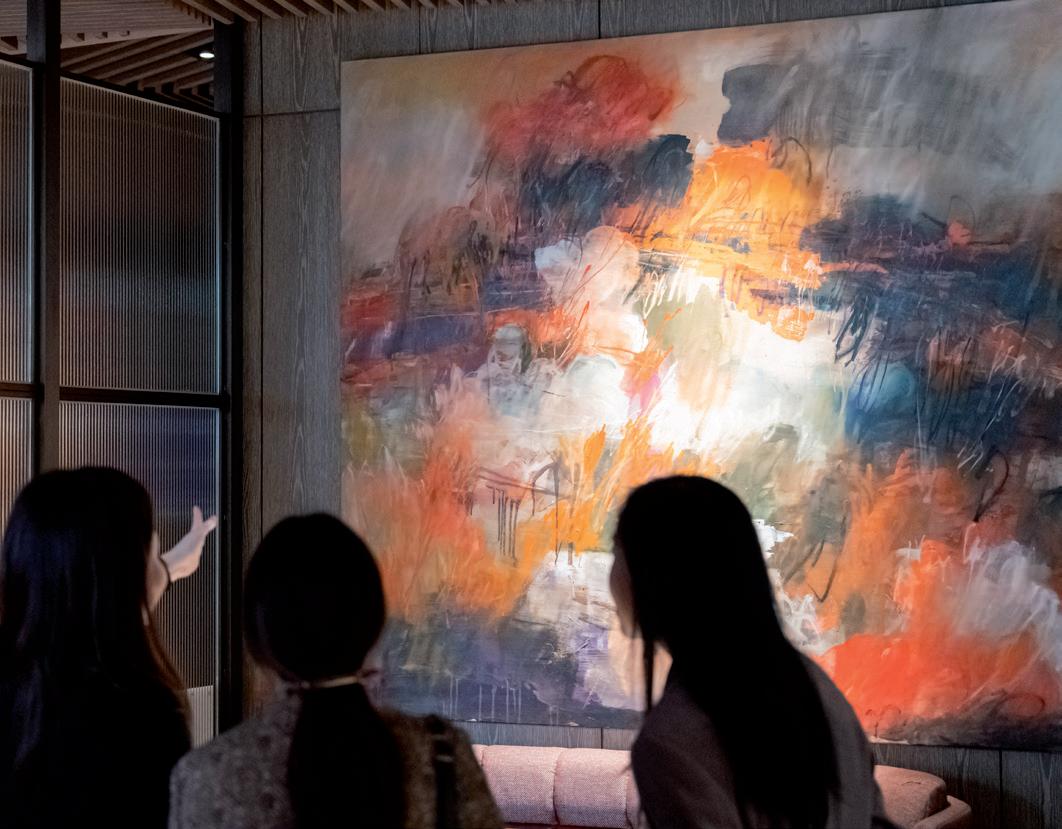

anniversary this year, Snoeks’ continued priorities are to elevate guest experiences, generate ambitious business results, and strengthen local community ties.
“We’ll achieve this through curated dining options, personalised service, and partnerships with local artisans. All of this reflects the warmth and charm that defines The Hari brand.”
Snoeks said he was fortunate to have an excellent team, and that by fostering a culture of excellence and prioritising guest feedback, every experience is ensured to be memorable.
The Hari Hong Kong has explored smart technology for seamless, personalised services and prioritising enhancements based on industry trends and guest feedback, such as voice-activated in-room control systems, and mobile ordering of in-room dining and housekeeping services.
Looking ahead, Snoeks said the need for adaptability would be key.
“We’ll stay agile, responding to
market changes and guest feedback to refine our offerings. Luxury requires an individual approach with different needs for different guests. Creating memorable, unique experiences is what we aim for.”
He added that the industry has evolved with a focus on wellness and sustainability. He said guests crave authentic experiences that foster connections, and that the industry must stay relevant and focused while navigating ever-changing expectations.
The hotel has plans to host themed events that celebrate local culture, including its The Hari Art Prize, which is now in its third year, as well as special initiatives for its fifth anniversary that will resonate with both its local and international guests.
At The Hari Kong Kong, Snoeks said the unique blend of modern luxury, local culture, sustainability and its team set it apart from others.
“We are not just a hotel; we are an experience, enhanced by excellent service in every aspect.” l
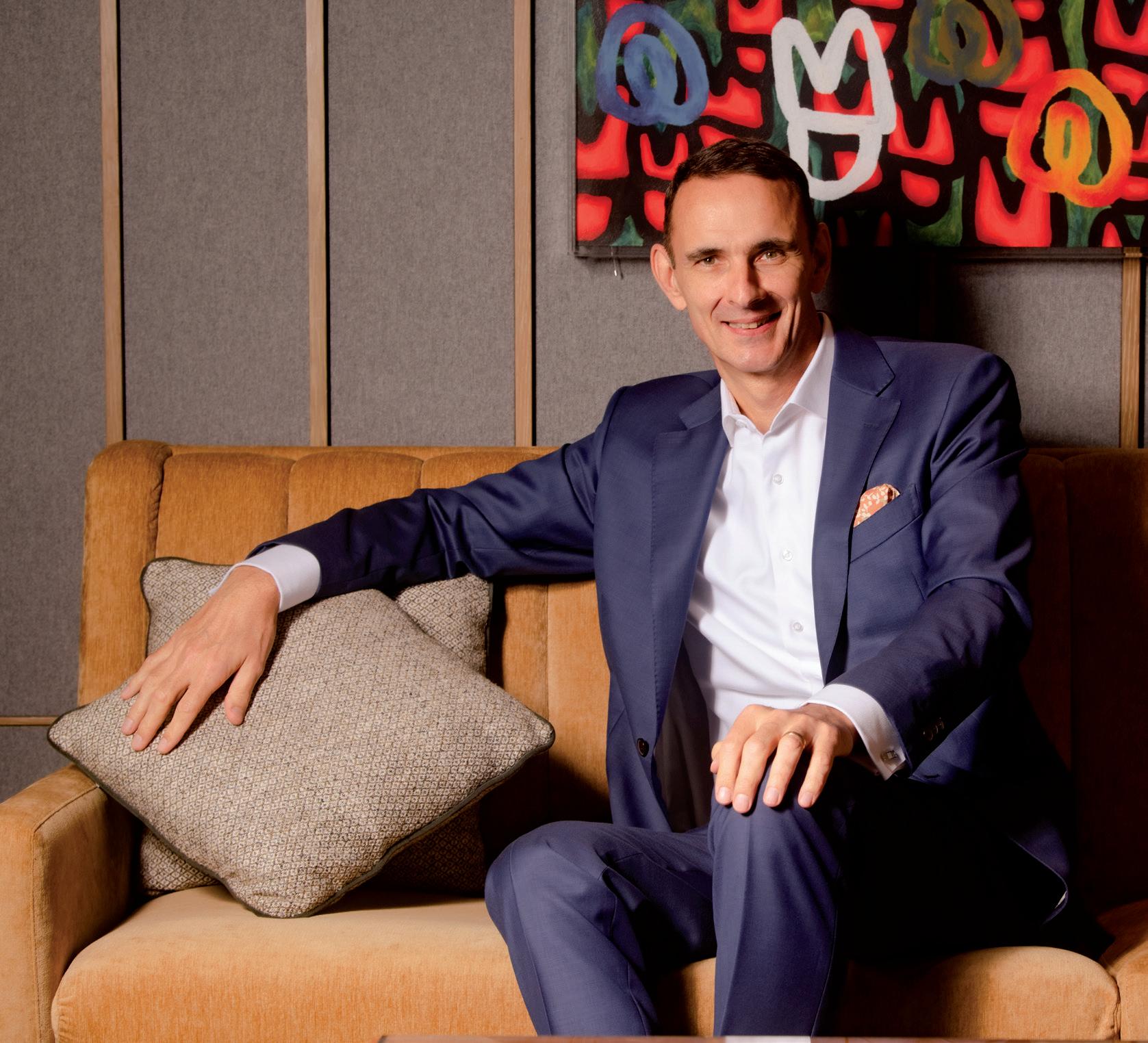

Steve Chan has been at The Hari Hong Kong for over four years, spending the past two years as Assistant Bar Manager. Before joining The Hari, Chan worked in various hotels around Hong Kong.
Whilst working behind the bar, Chan discovered his talent for mixing ingredients and developed a passion for interacting with guests. This experience ignited his desire to pursue a career in bartending.
He has been bartending for the past seven years, starting at the age of 19. He said he loves to create new cocktails and share the stories behind them. He soon realised that this was his way of expressing his passion for the craft and showcasing his artistic side to the world.
The most fulfilling part of his job has been to see guests enjoy his drinks and the service he is able to provide, especially when guests return specifically for the cocktails he has made for them. Knowing that he has made their experience memorable brings him great joy.
In his opinion, balance is essential for crafting the perfect cocktail.
“For me, great drinks are all about achieving the right harmony of flavours,” he said.
Low and no offerings have become instrumental in the modern mixology landscape all around the world.
Chan said he has noticed that more guests are opting for low-alcohol or alcohol-free beverages, as many restaurants now offer mocktails and zero-percent free-flow packages.
Another significant trend in the
This drink embodies various Japanese elements, including shochu and Komasa Hojicha gin, and features an elegant and creative presentation.
Hong Kong beverage scene is the incorporation of local elements, such as Hong Kong street food and canned delicacies, into cocktails.
For customers unsure what to order, Chan suggested one of his signature cocktails, the Chakai, which means tea ceremony and symbolises meeting new friends through tea.
“This drink embodies various Japanese elements, including shochu and Komasa Hojicha gin, and features an elegant and creative presentation.”
Chan believed that the Dry Martini would always remain a classic. He said its iconic status is reinforced by its frequent appearances in films and the many variations that have been inspired by it.
When he’s not bartending, Chan is an avid music lover, and listening to various styles of music and playing the guitar during his downtime is a favourite pastime of his.
He describes New Zealand as the ideal location for producing spirits and wines, which he said was due to its excellent climate and water quality.
“I’ve heard great things about a whisky brand called POKENO, and I’ve had the pleasure of meeting their team through one of my suppliers.”
For bartenders struggling during these challenging times, Chan said to grab a shot and keep working hard.
“The magic of a great bartender lies in the sleight of hand, hiding the hard work while serving up pure pleasure.” l
